BOOK 1


The fictional book "EUNOĪA: FROM CAPITALISM TO UTOPIA" explains the history and functioning of society in this fictional future, while aiming to educate future generations about its origins and values to ensure the continuation of its utopian system. It highlights the difficult journey to achieve utopia, emphasizing that it was a conscious effort, not a given.
The physical format symbolizes the importance of preserving knowledge and values in a lasting, tangible form, serving as a reminder of the struggles and principles behind Eunoīa’s creation.
The cover in both books, made with 3D flexible filament, represents Eunoīa’s transparency and purity, while the lines left by the printing process symbolize automation.

CHRONOLOGY
The timeline of Eunoīa begins in 2024 with AI advancements affecting jobs. By 2040, quantum computing leads to superior AI, reducing work hours and pushing for Universal Basic Income (UBI). In 2049, the singularity occurs, where AI surpasses human intelligence, accelerating technology and enabling full automation. By 2055, humanity introduces the "Humanitarian Plan for the Search of the Being" (HPSB), aimed at creating a utopia focused on personal fulfilment. This plan is implemented in 2060 (Year 0 DS), and by 10 DS, Eunoīa becomes a functioning utopia.

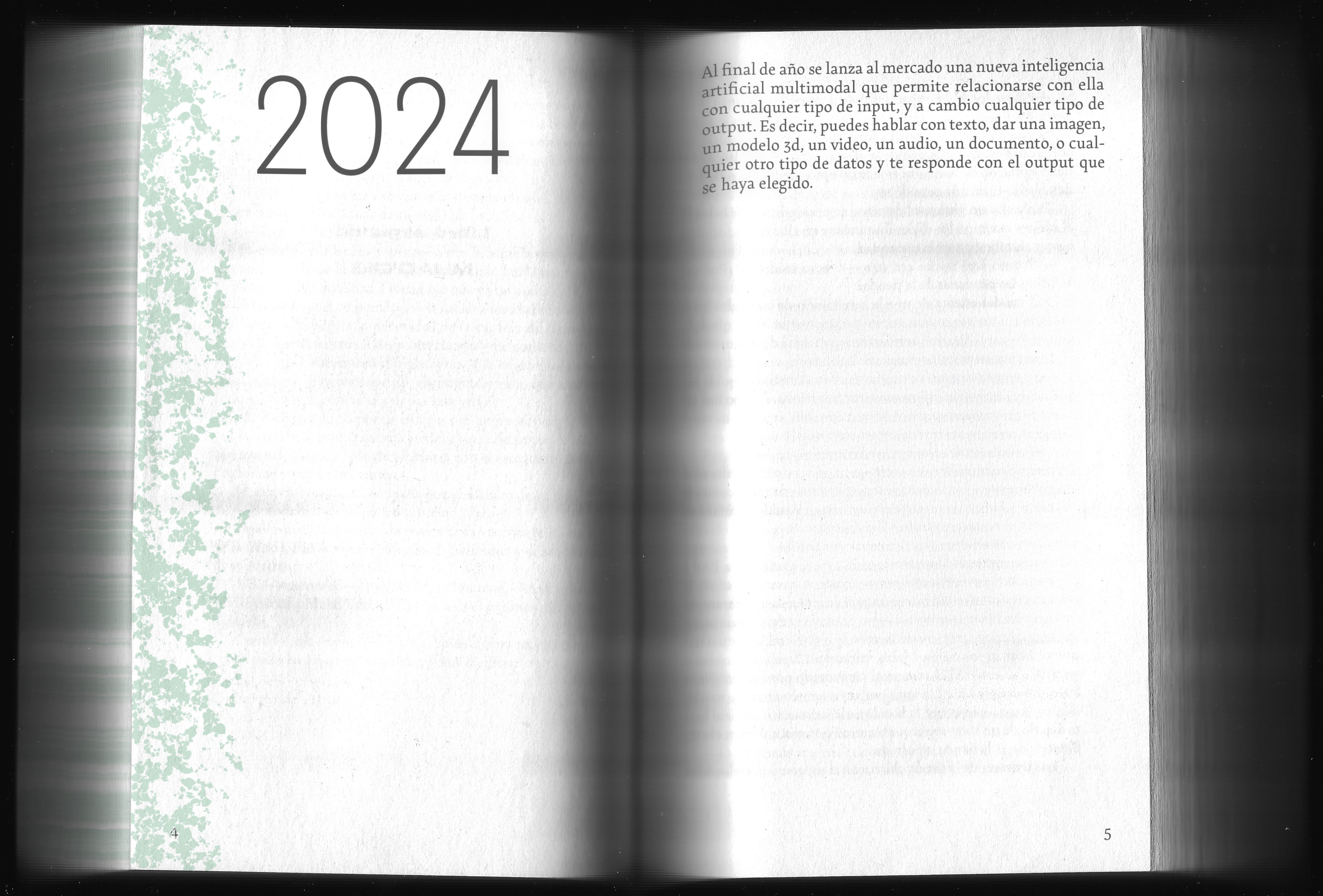

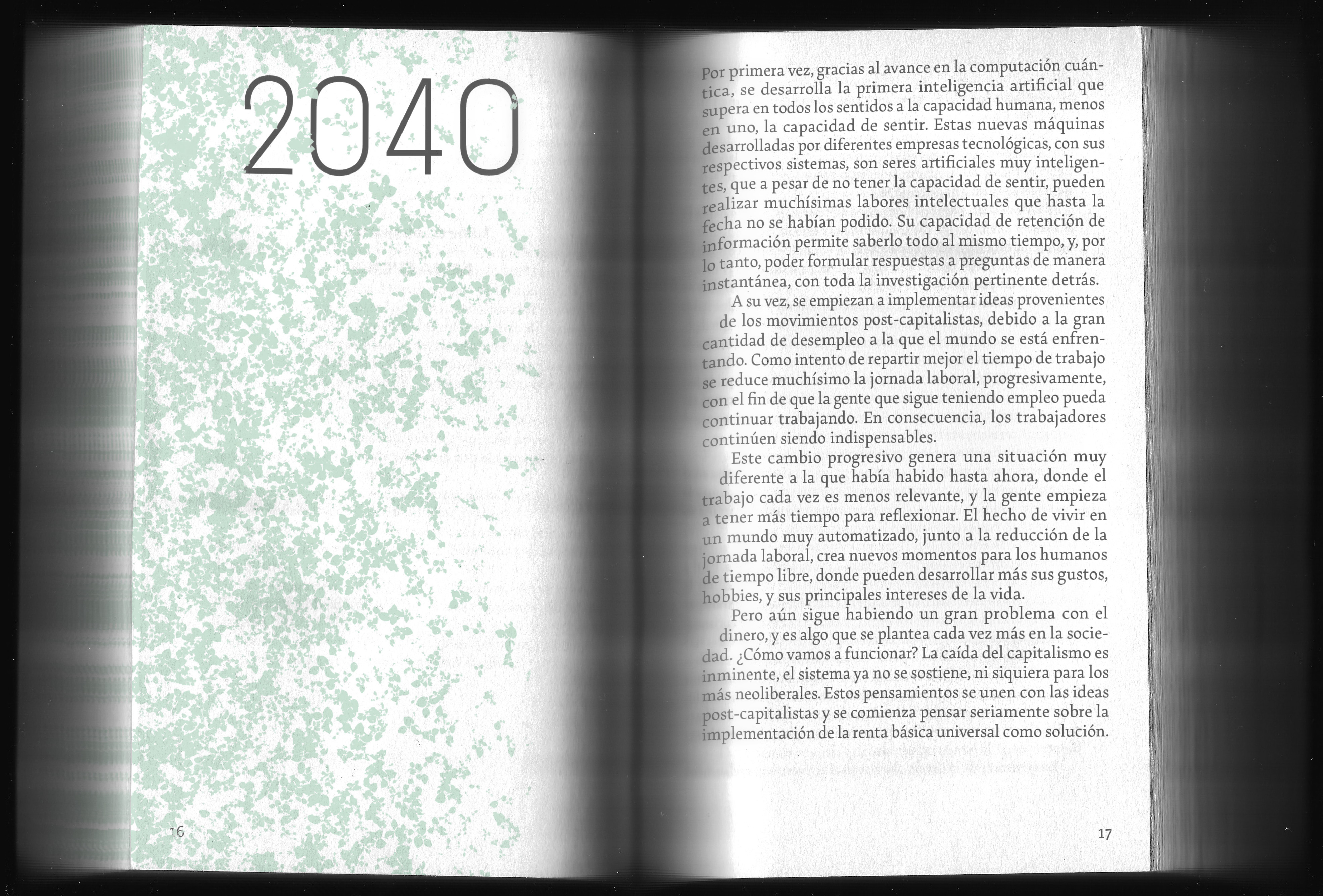
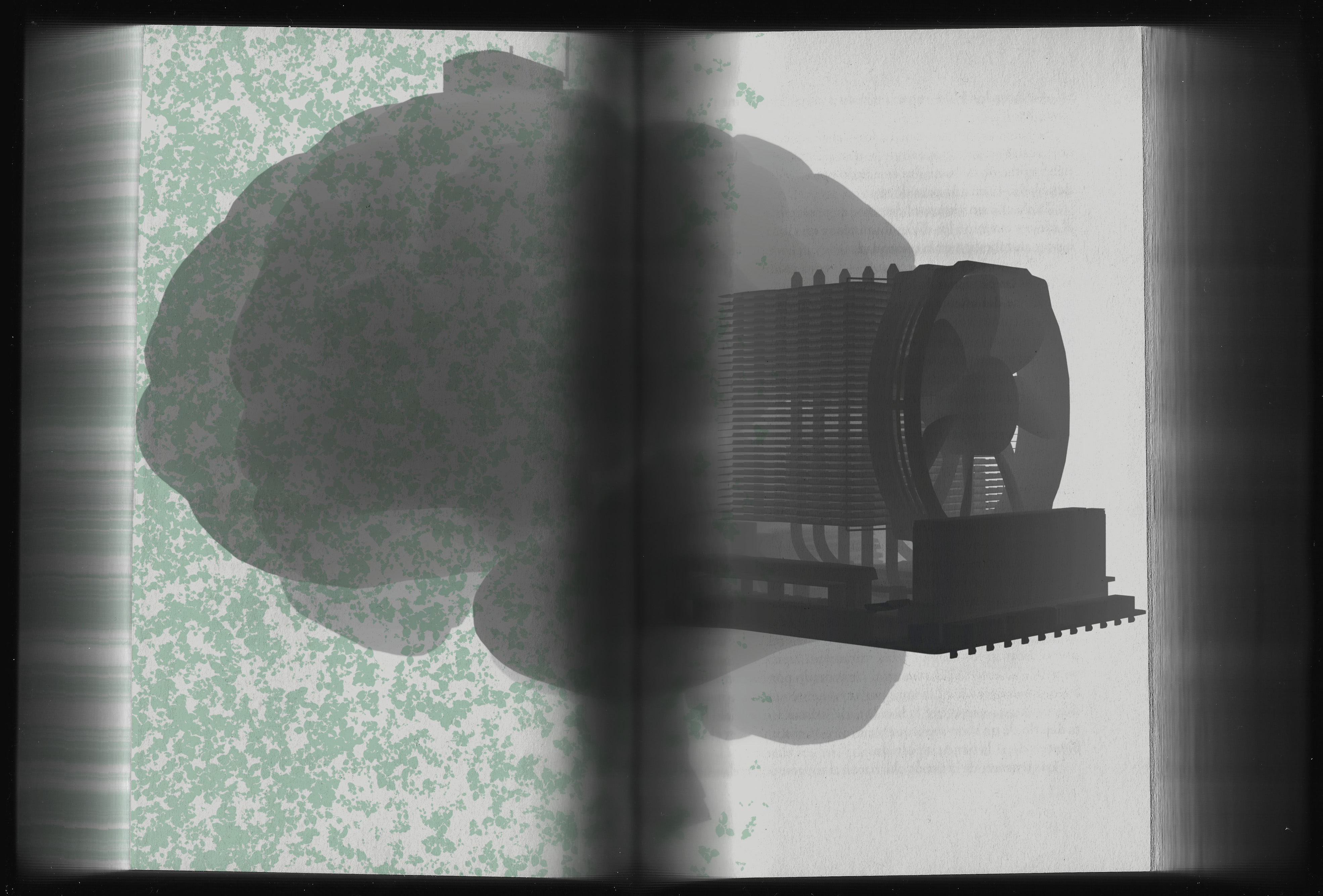
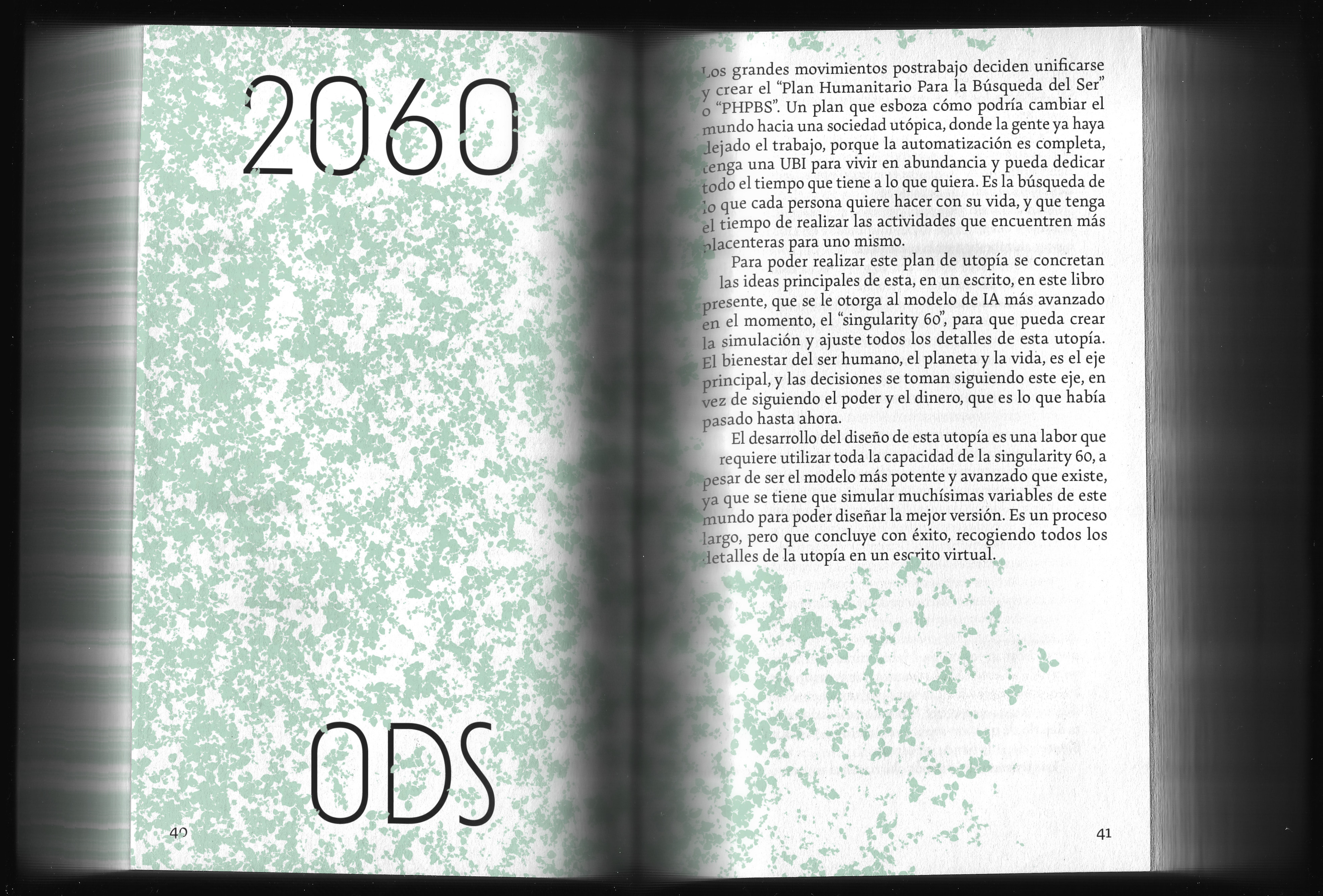

SOCIETY
In Eunoīa, work is fully automated, and Universal Basic Income (UBI) allows citizens to focus on personal growth and well-being rather than productivity. Freed from work-related stress, people pursue passions and contribute to society through non-profit "collectives" that prioritize ethical, sustainable practices. Education centres on personal development, and family life thrives without economic pressures. This shift in values has also transformed cultural and religious institutions to focus on community, sustainability, and personal fulfilment.


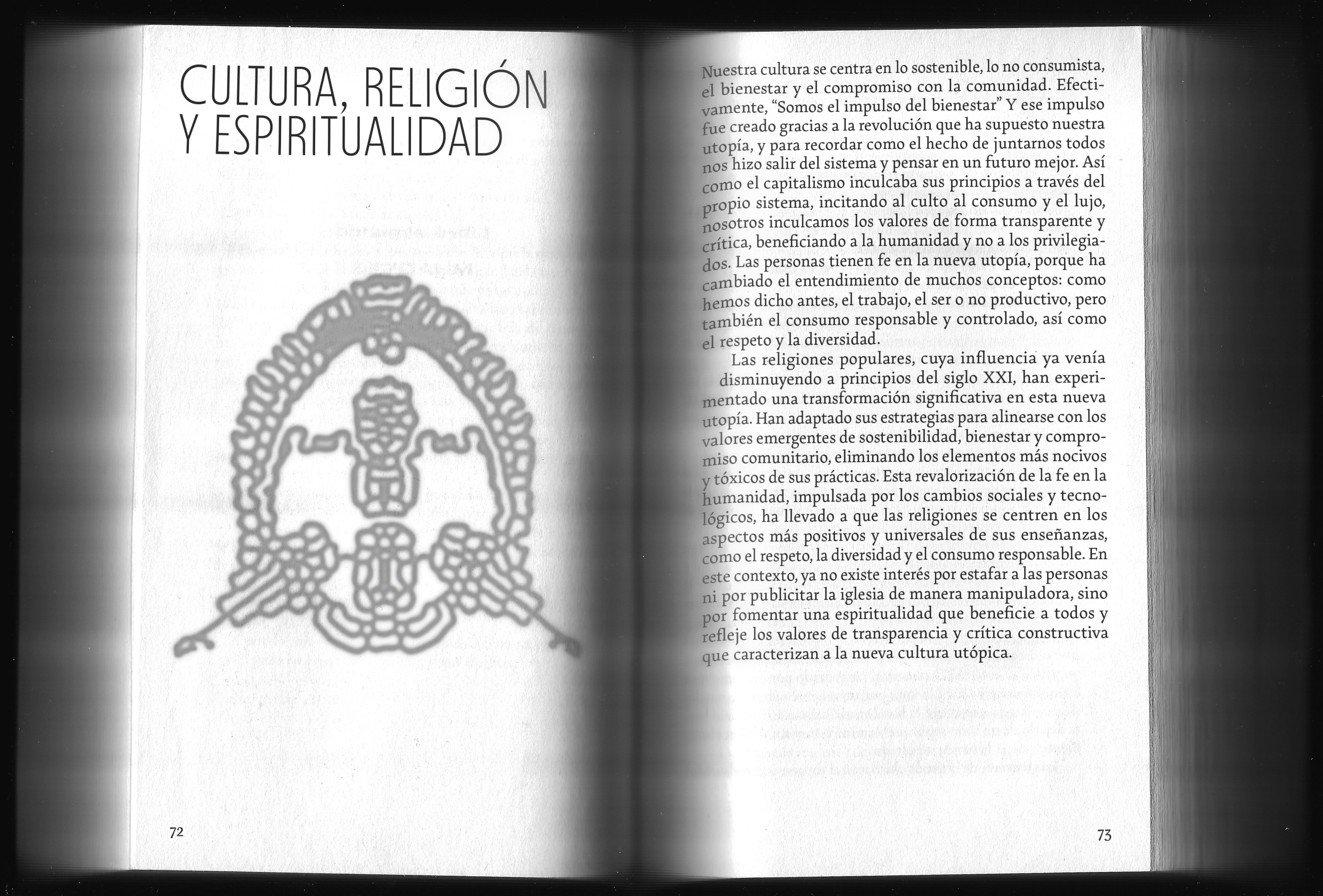
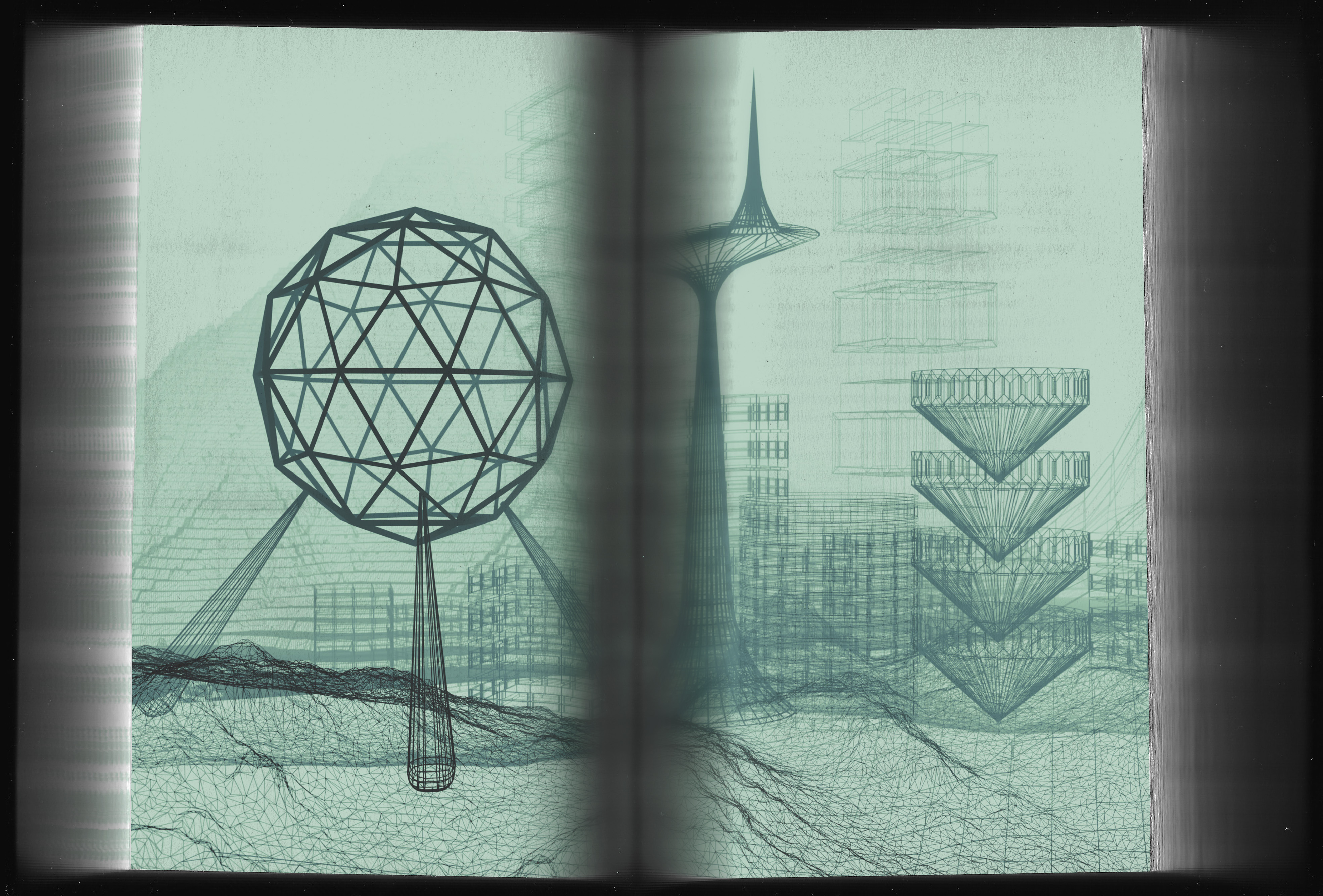
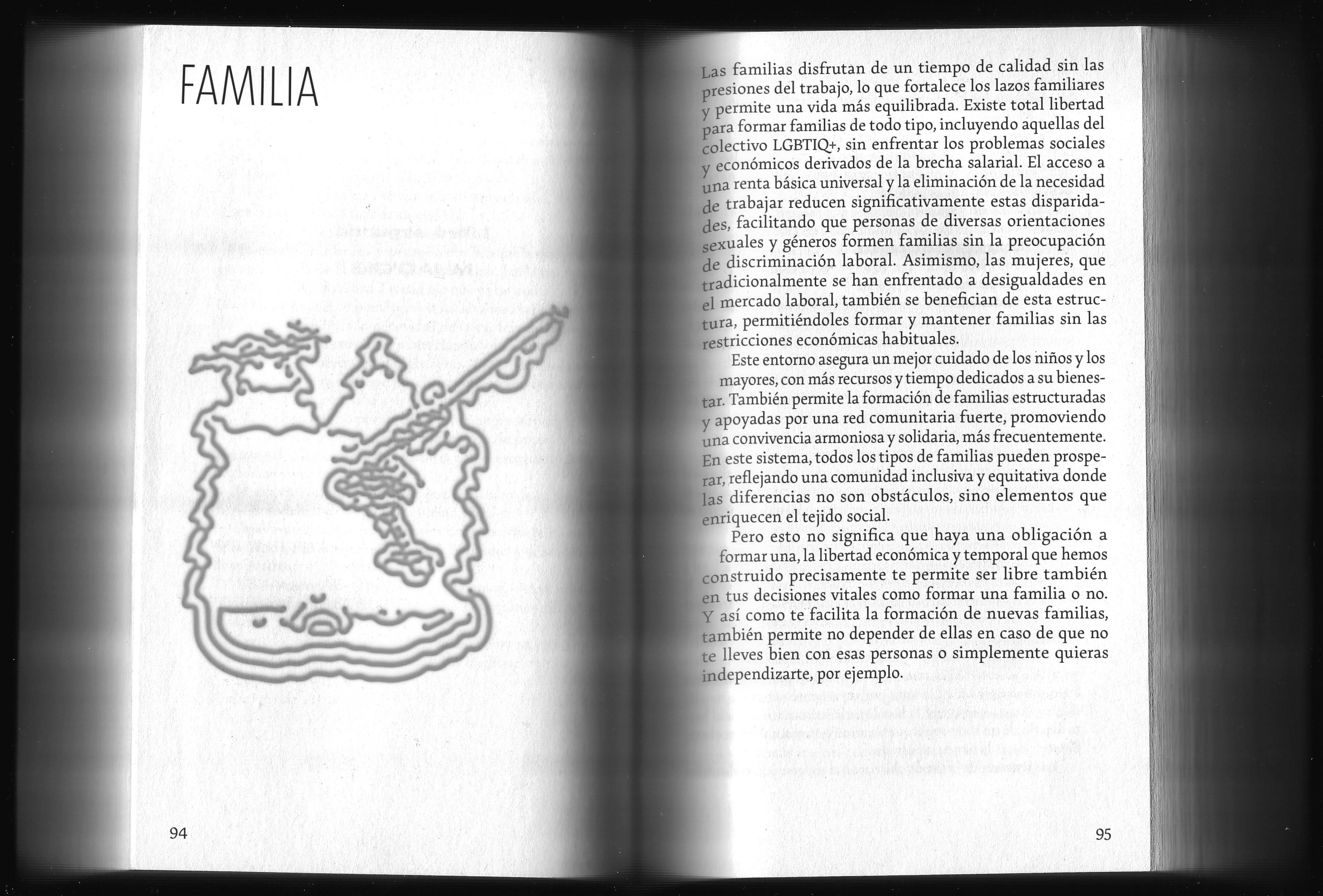


ECONOMY
It is no different for the economy, where "collectives" operate as non-profit entities, prioritizing ethical production and transparency. Goods are high-quality, durable, and produced efficiently through methods like 3D printing, with automated trains for distribution. Citizens prioritize ethical consumption over mass production. "Marketing" shifts to educating the public on products that enhance well-being. While money exists digitally for expenses beyond UBI, Singularity 60, an advanced AI, works to improve resource management. Open-source principles are central, encouraging collaboration and discouraging the commodification of information.
![]()
![]()
![]()
![]()
![]()
![]()
![]()
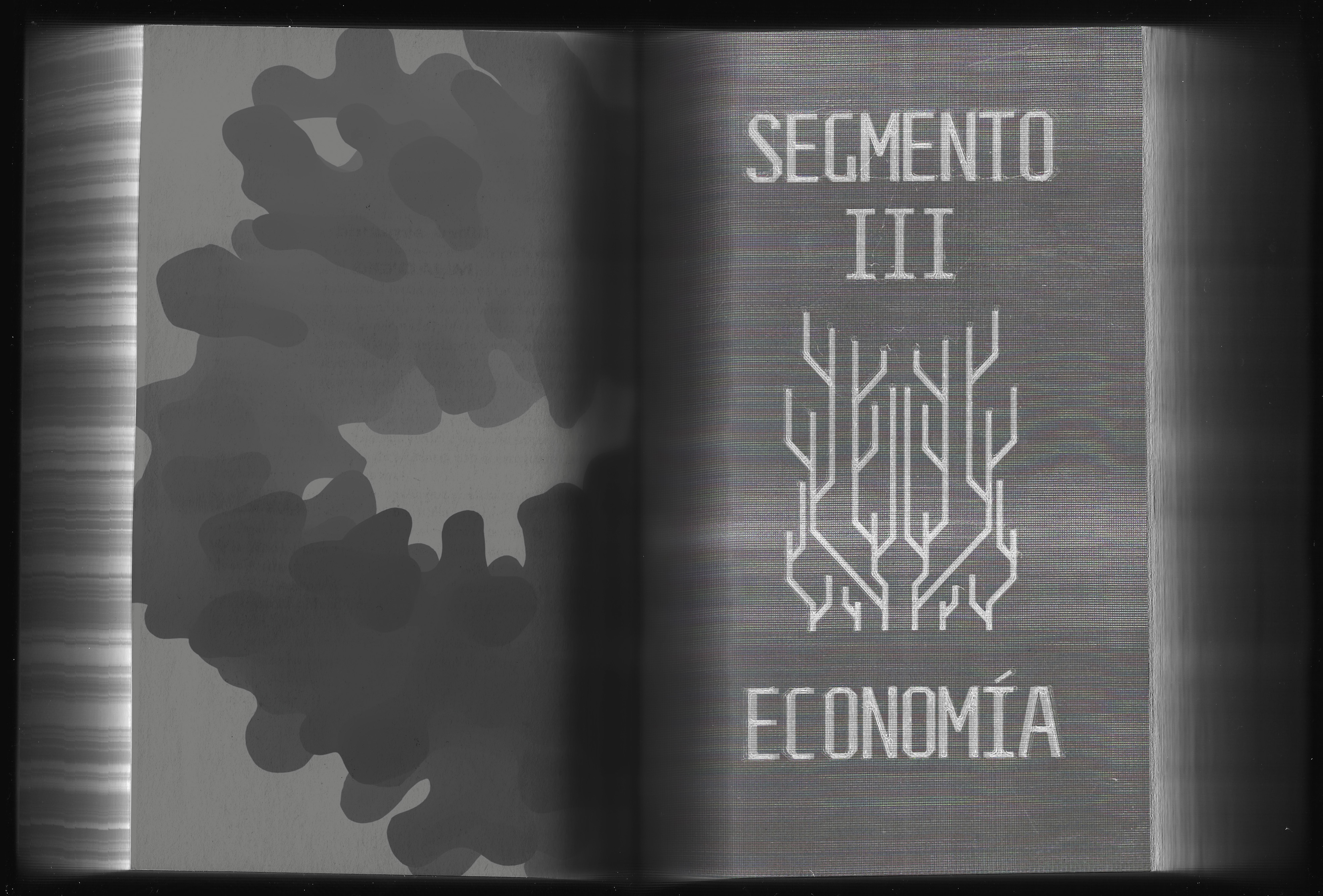
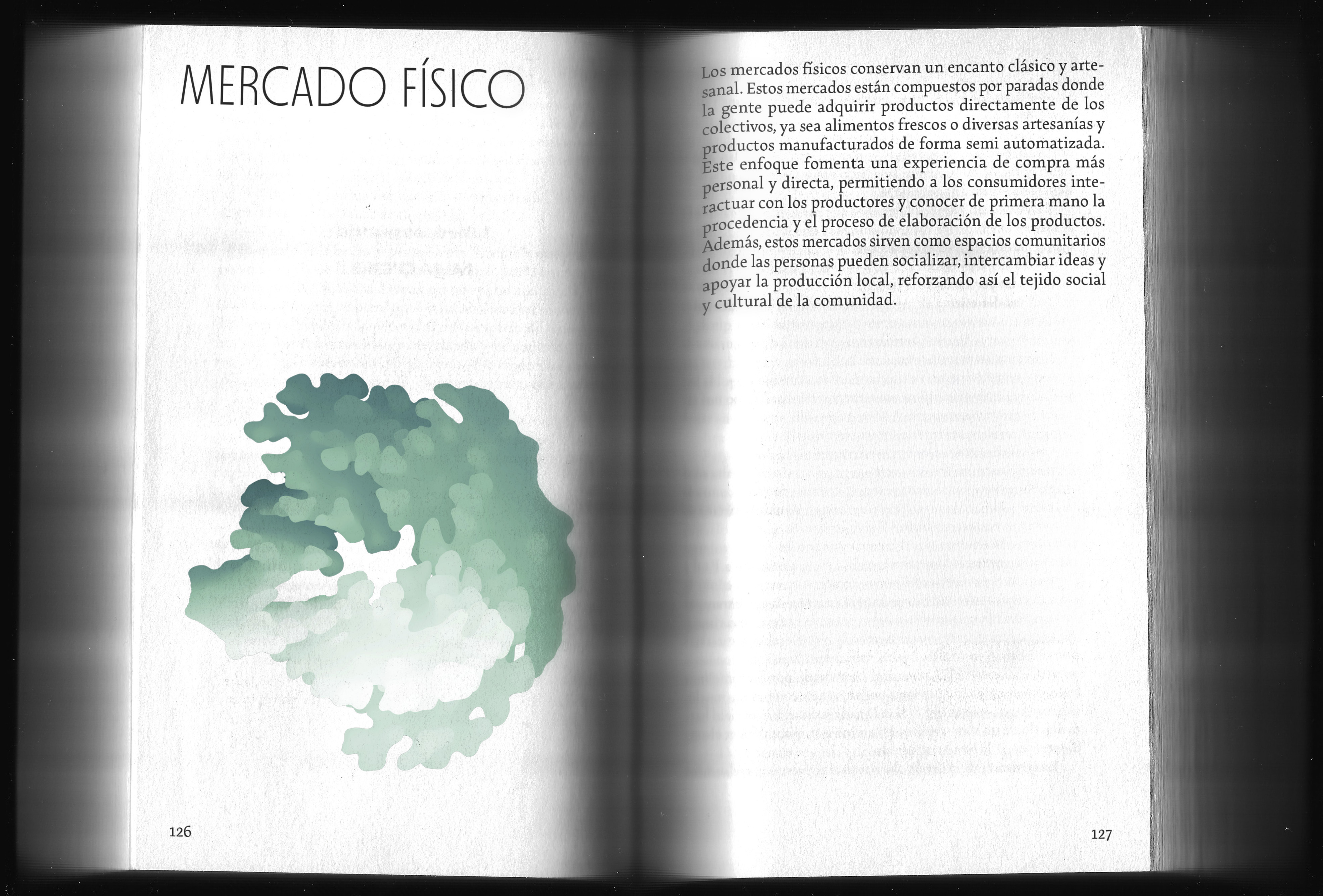

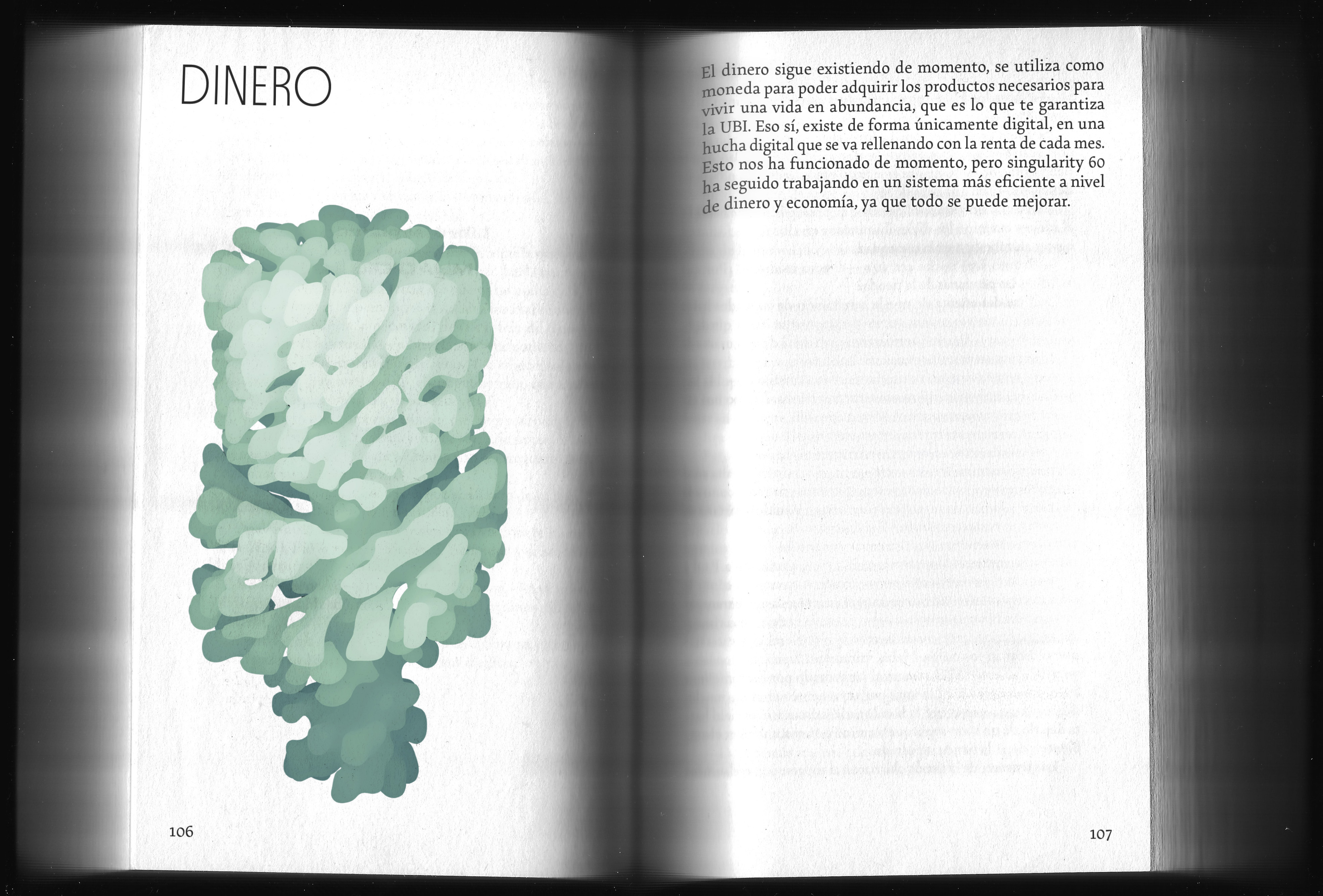


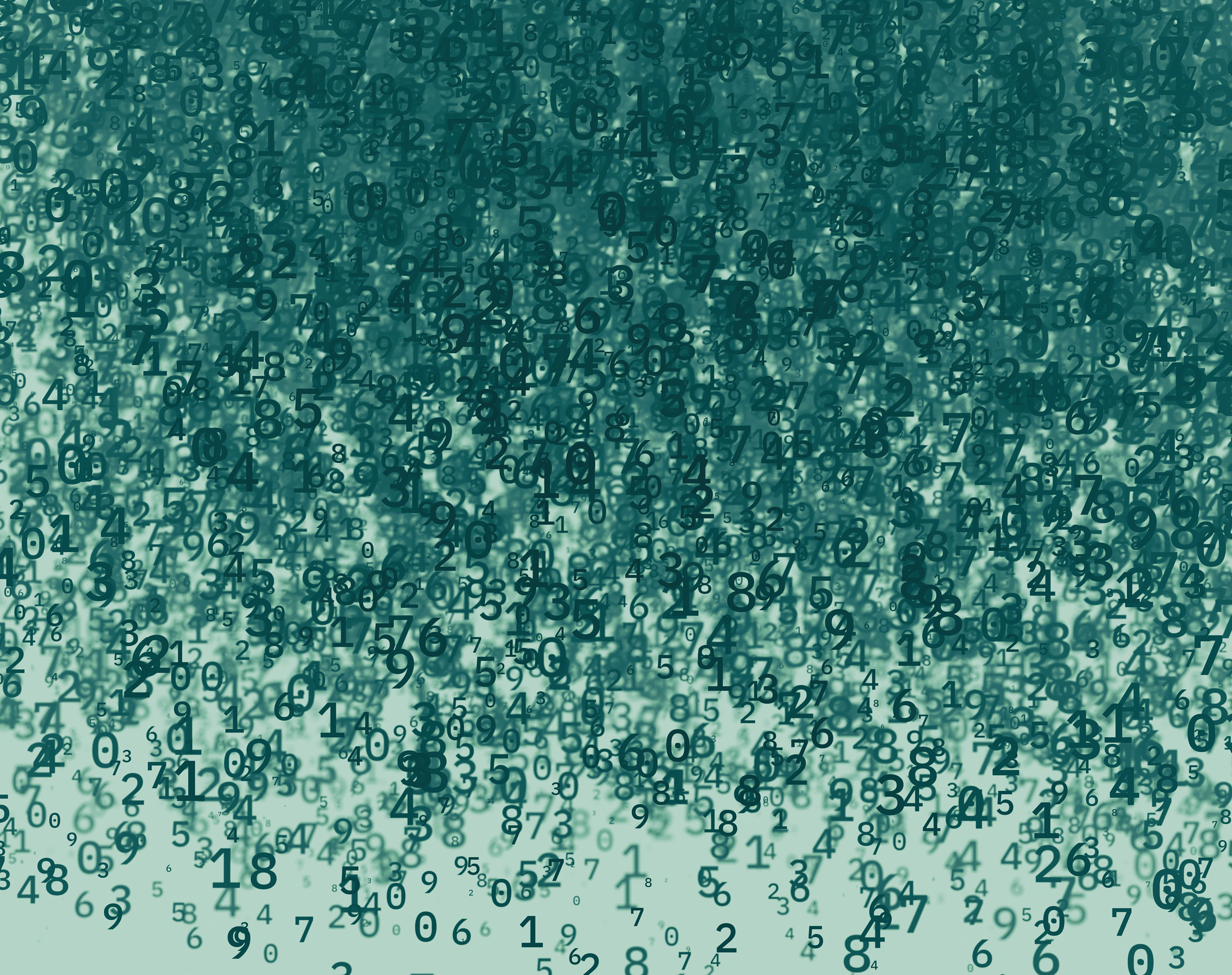
COLLECTIVES
"collectives" are introduced as a replacement for traditional brands in the utopian society of Eunoīa. This transformation stems from the abolishment of work and the implementation of UBI, which eliminates the need for competition and profit-driven motives. Collectives, functioning as non-profit entities, prioritize transparency, open-source information, and collaboration, aiming to contribute to the well-being of the community.
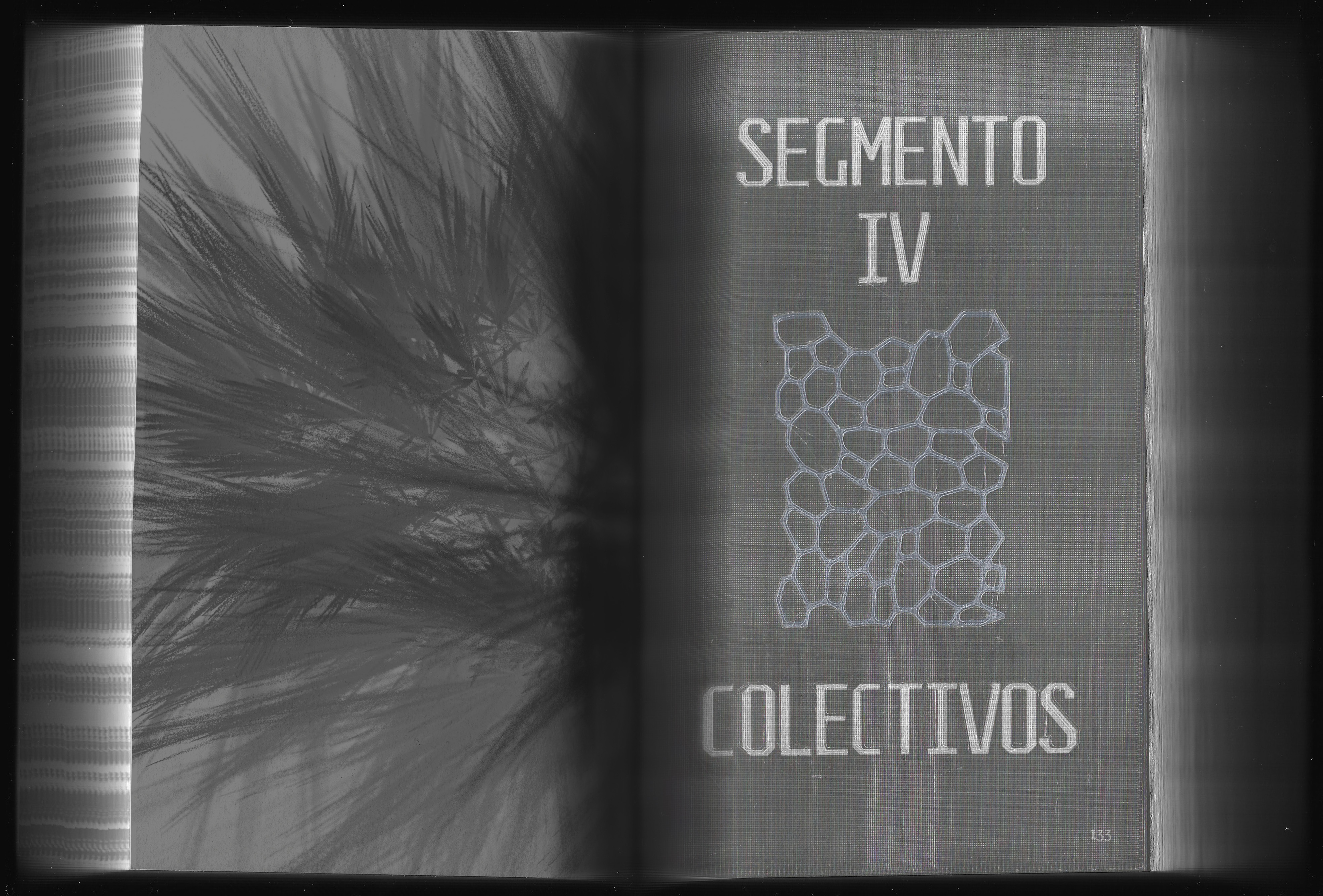


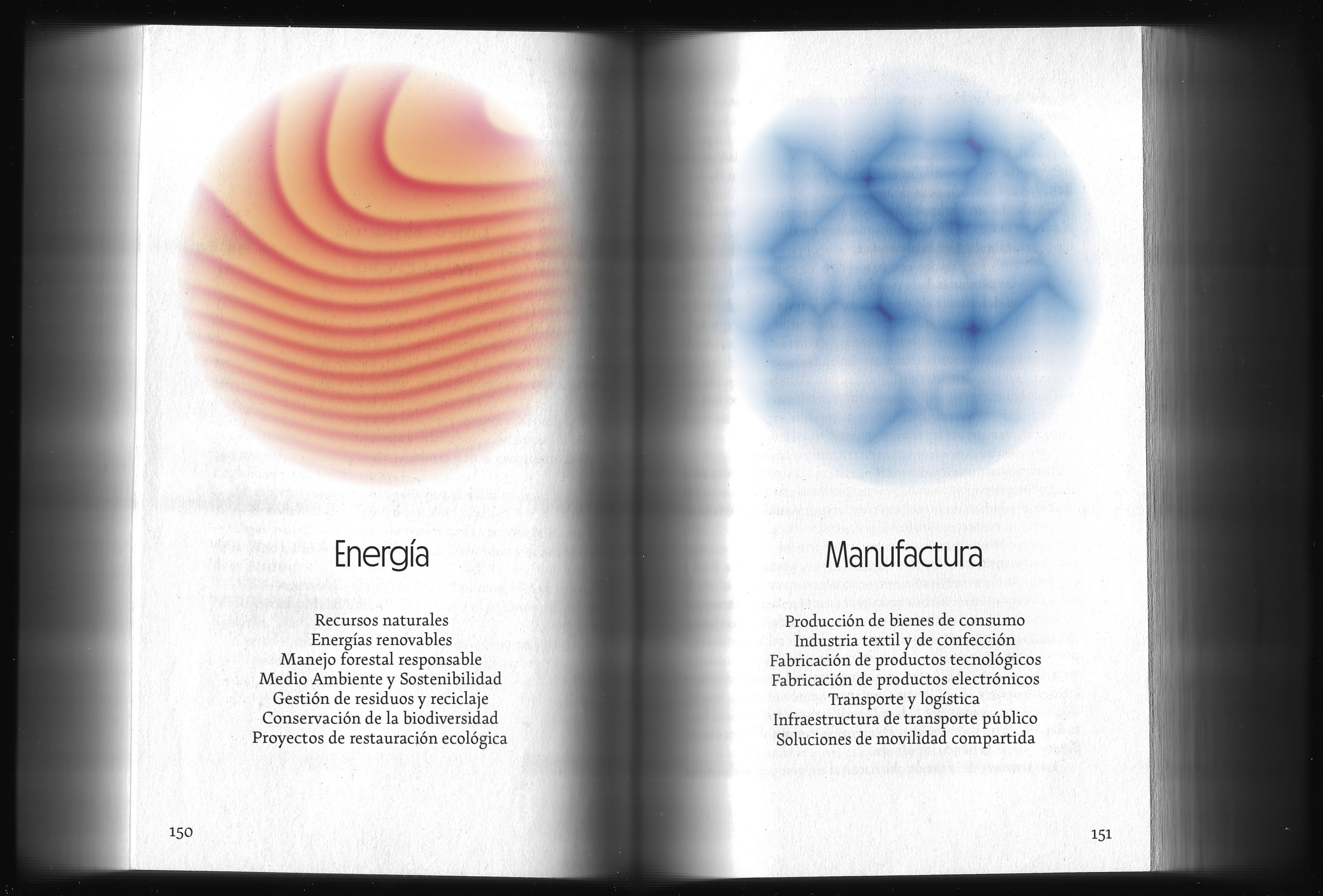
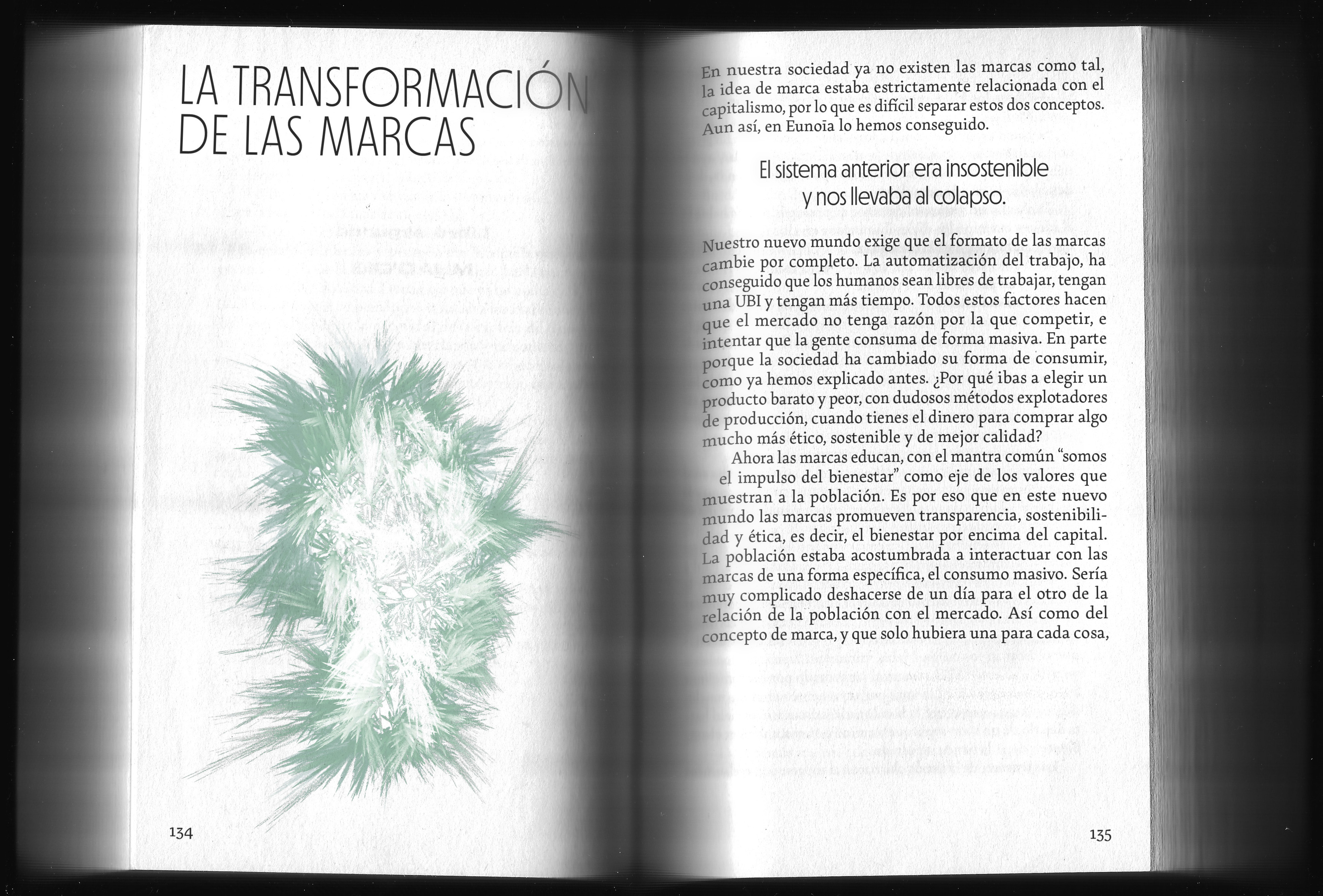
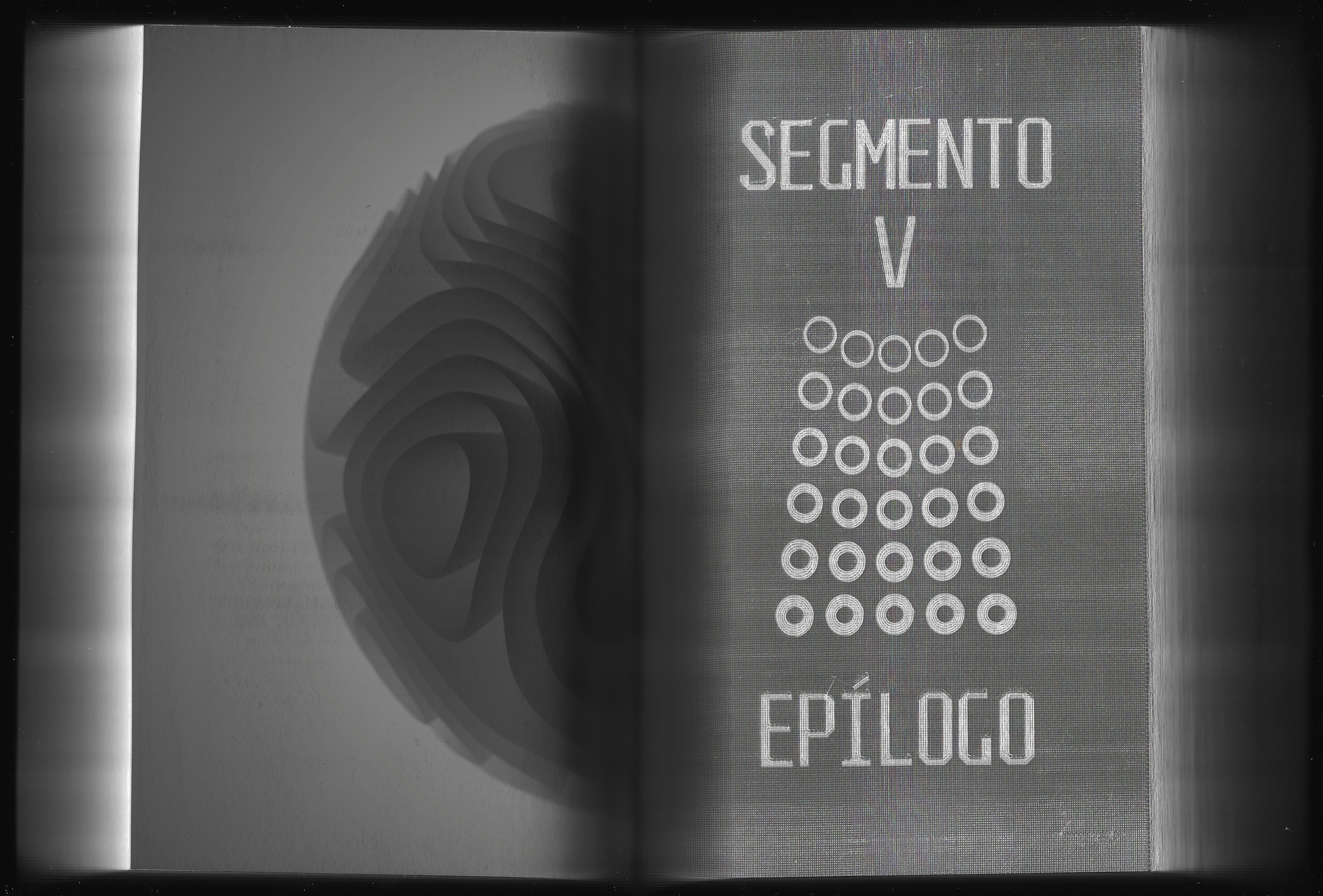
FOLLOW THE PROJECT ON THE SECOND BOOK >>>
BOOK 2

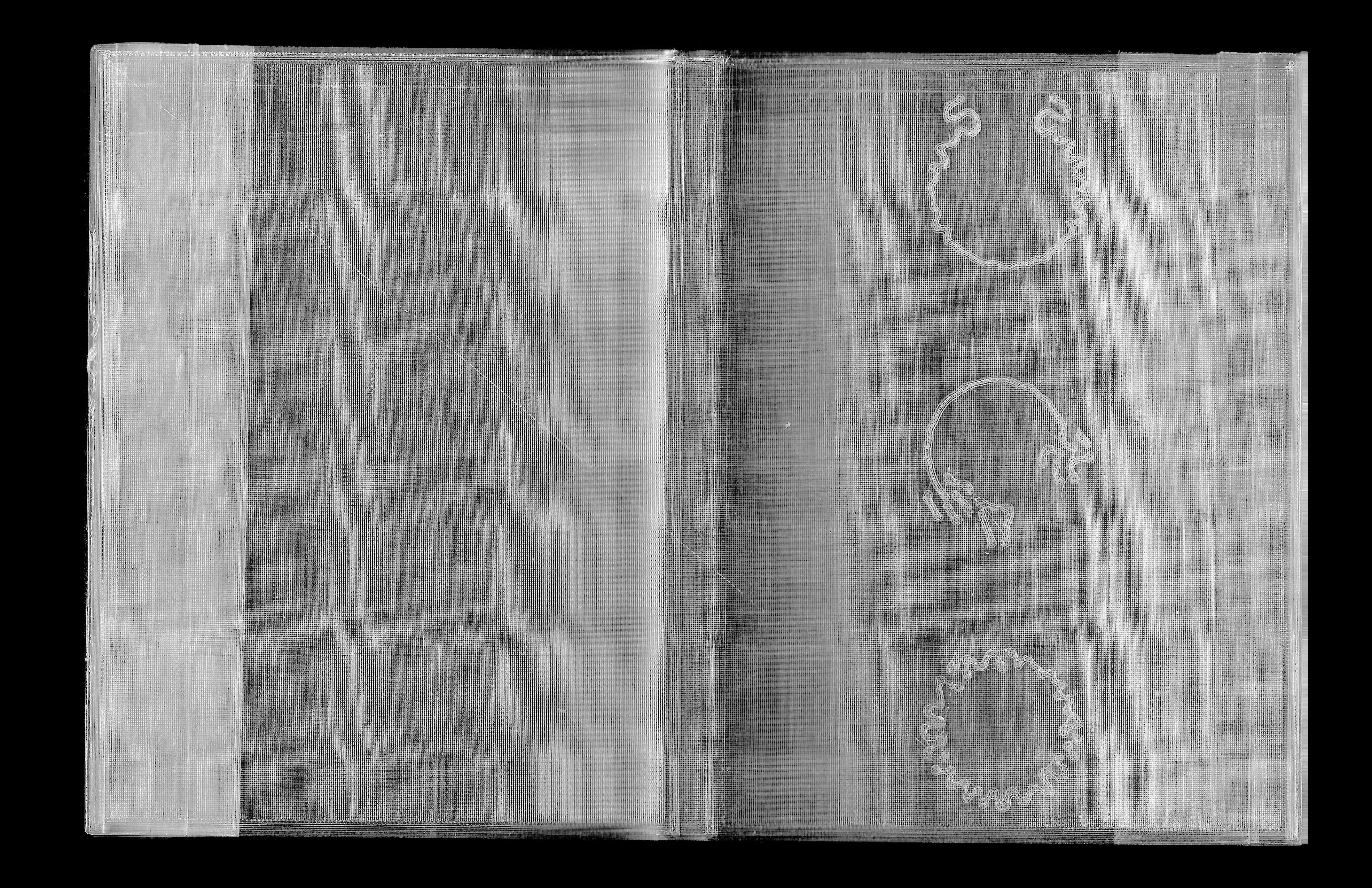
To avoid the pitfalls of traditional branding, Eunoīa adopts a "post-post-branding" system, emphasizing ethical and sustainable practices over consumerism. This new system utilizes "klerograms," textured bands of colour that visually identify a product's sector, and "kyklograms," unique symbols containing detailed information about each collective and its products, accessible through a system called SRC (Sistema de Reconocimiento de Colectivos).
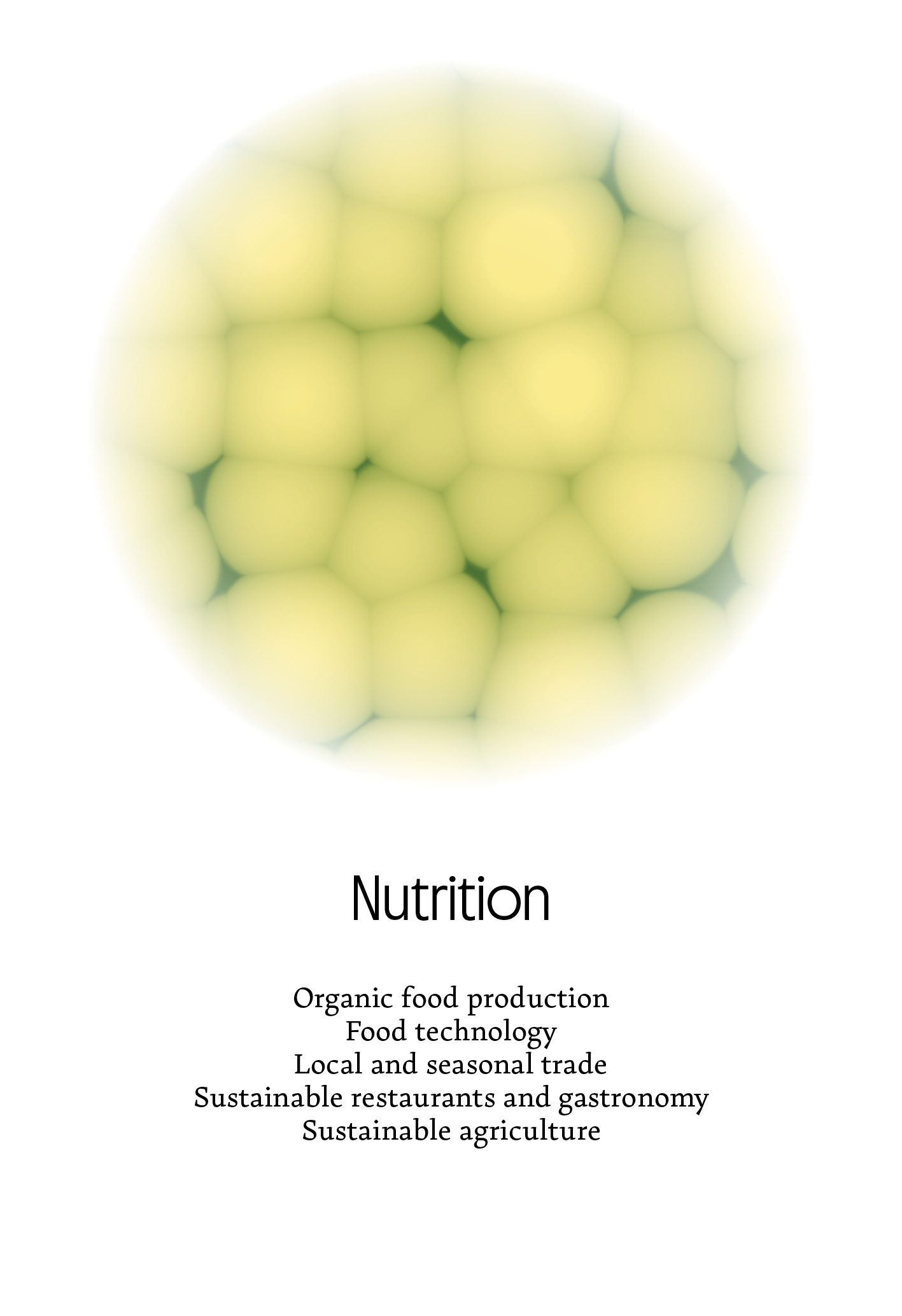


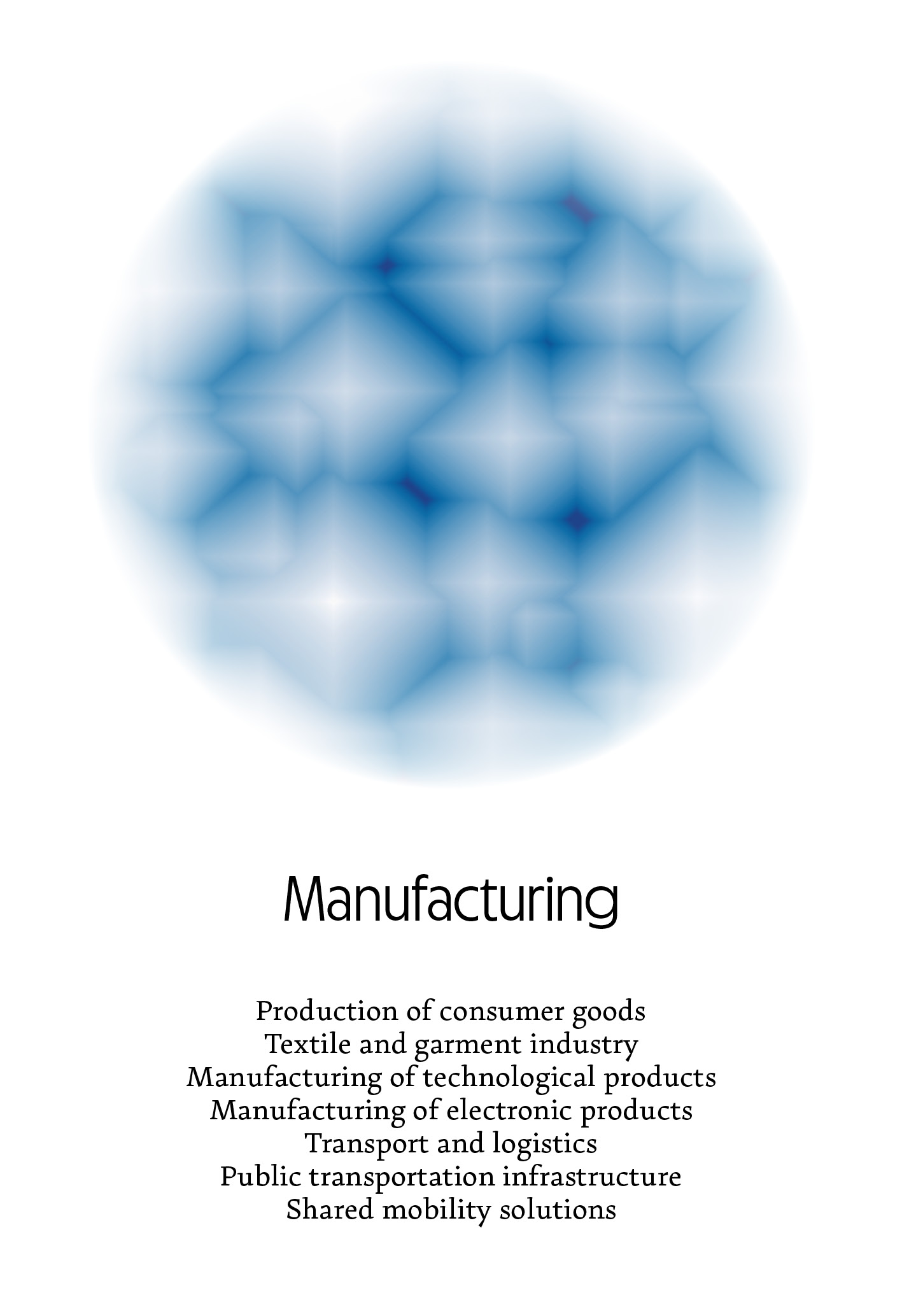
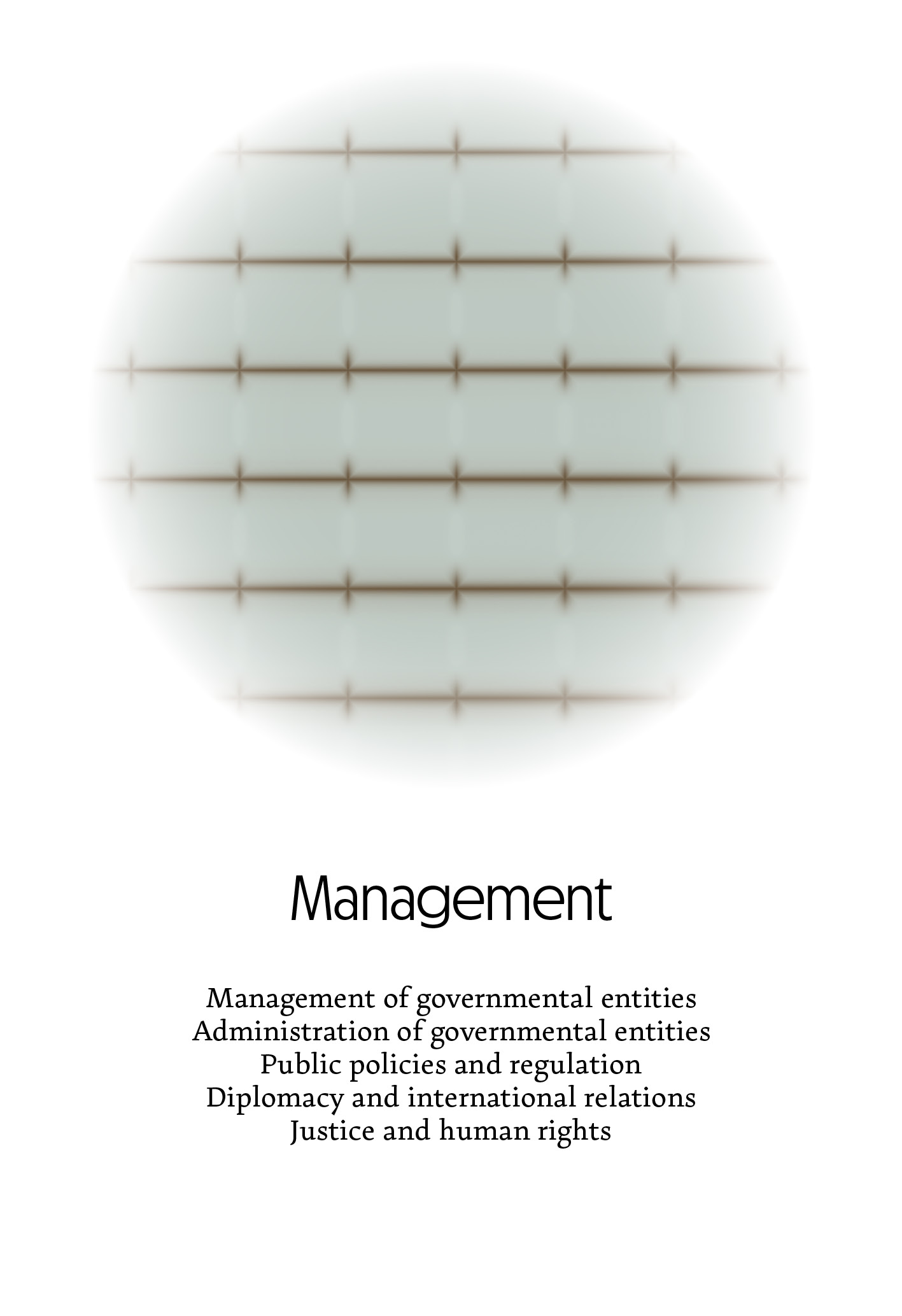
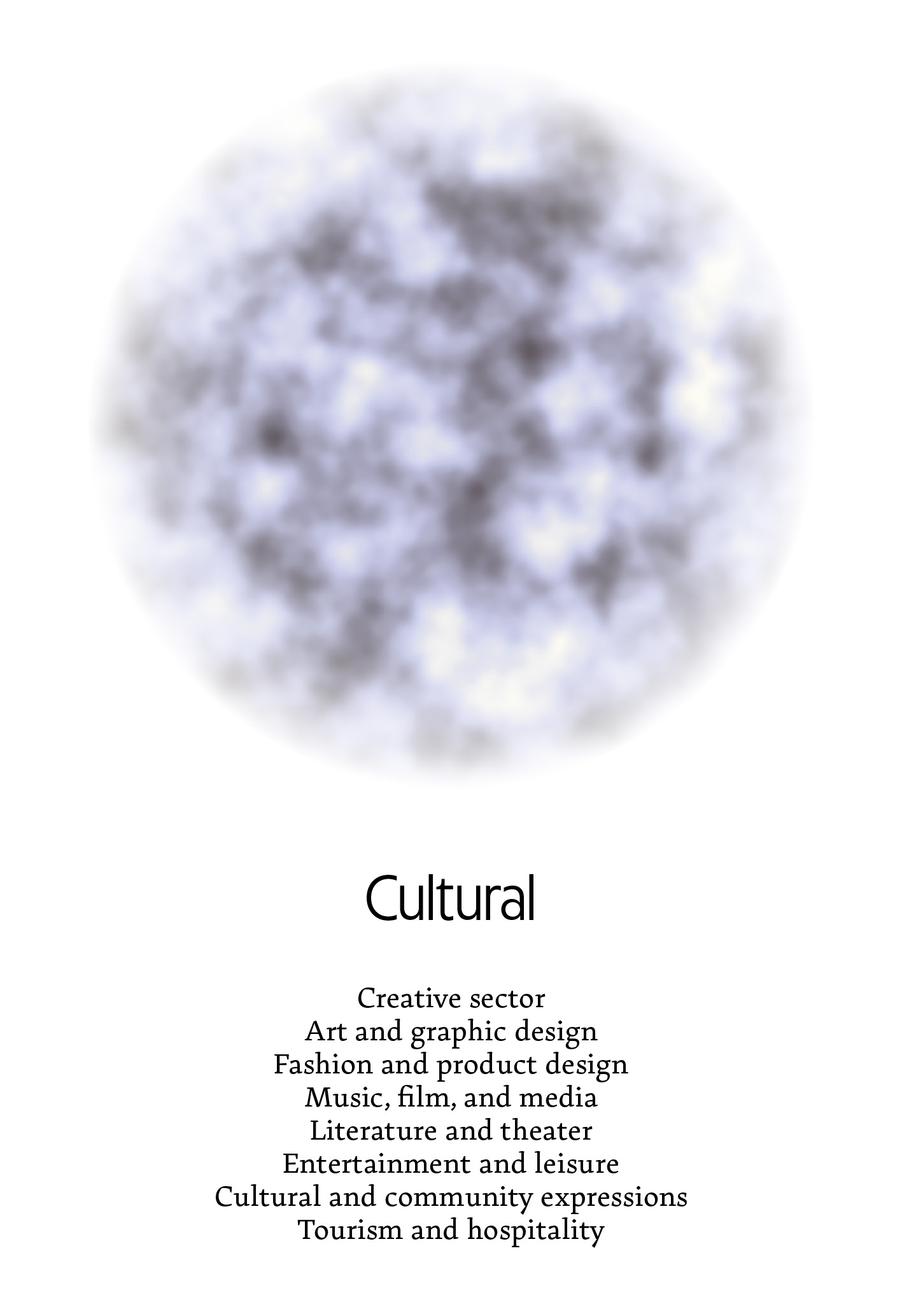
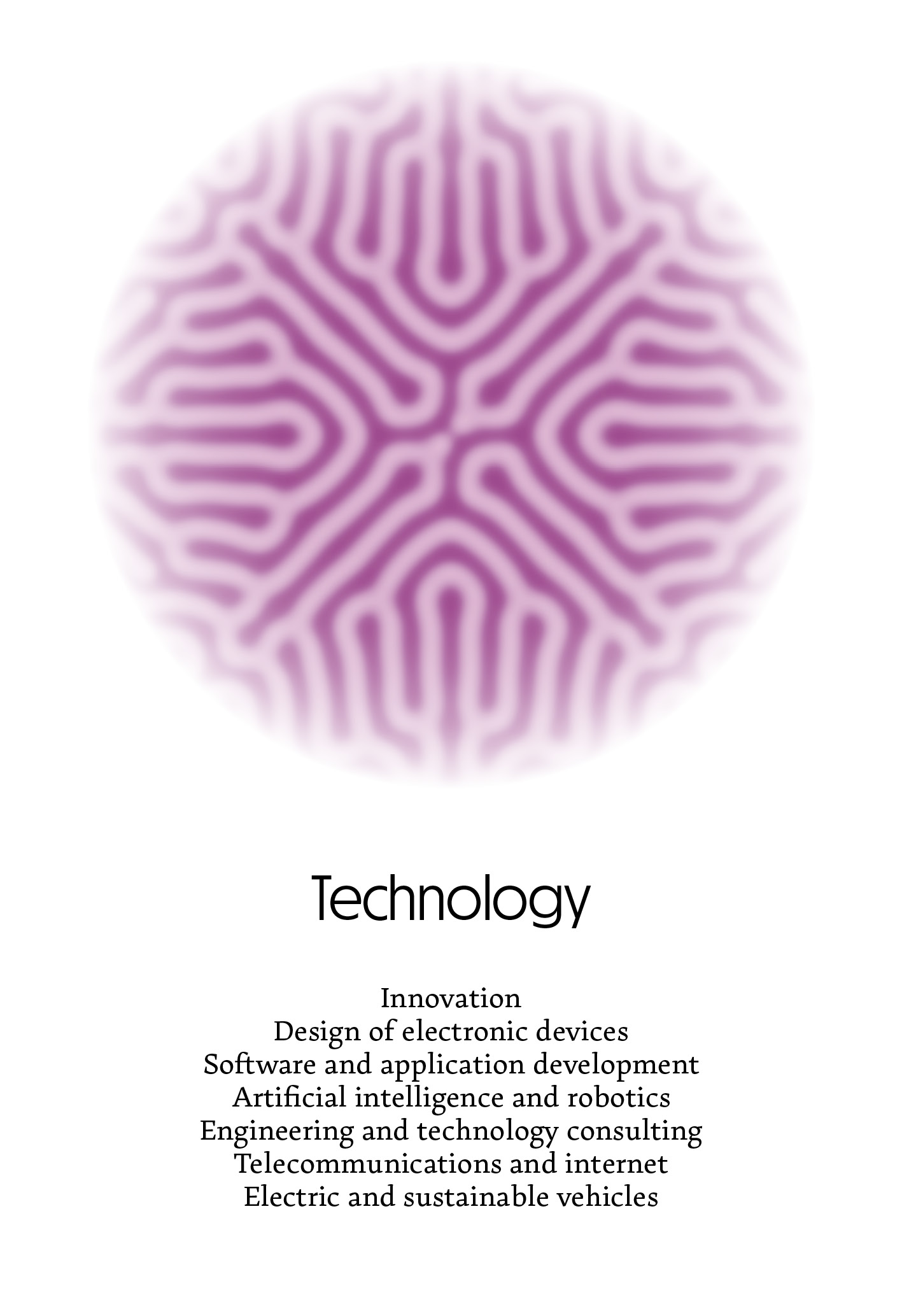

Kyklograms:









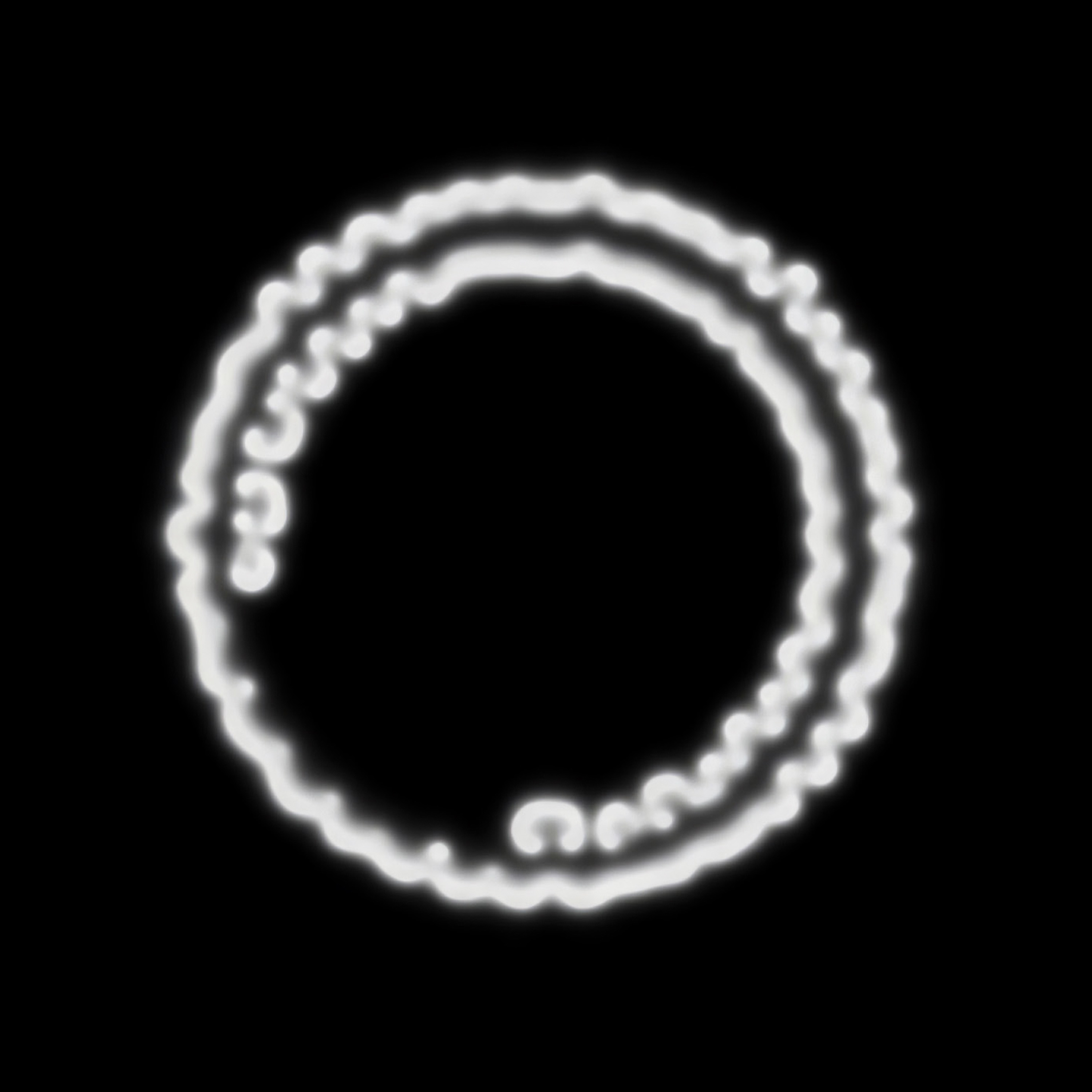


This approach aims to provide transparency and inform consumers without resorting to manipulative advertising tactics or fostering a sense of brand loyalty. Instead of competing for market share, collectives in Eunoīa focus on producing high-quality, ethically sourced goods and services that meet the needs of the community, reflecting a broader societal shift towards prioritizing well-being over material acquisition.
The 2nd book shows three examples of this, with three different collectives in different sectors: Food, technology and clothes.
EXAMPLE OF NUTRITION COLLECTIVE
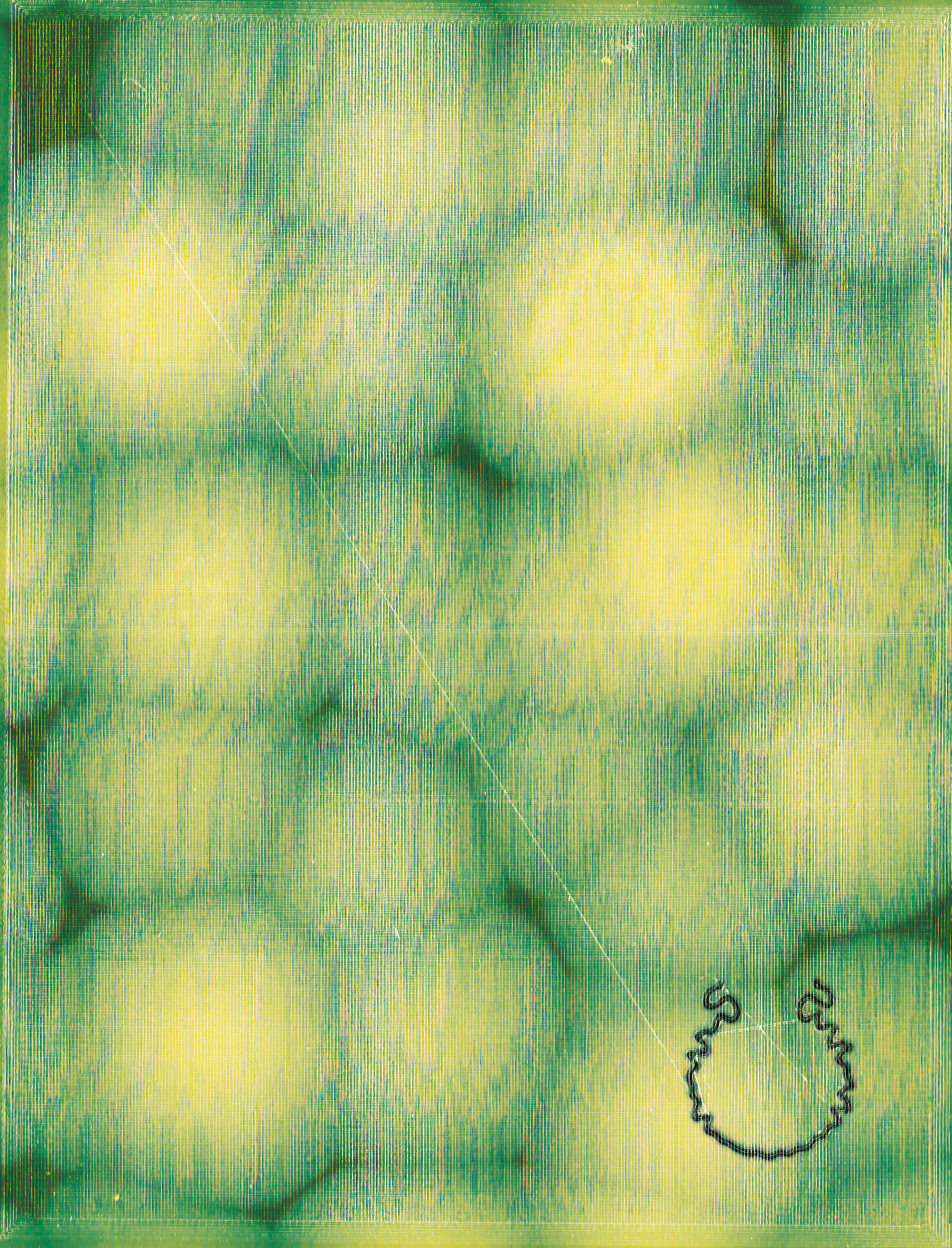
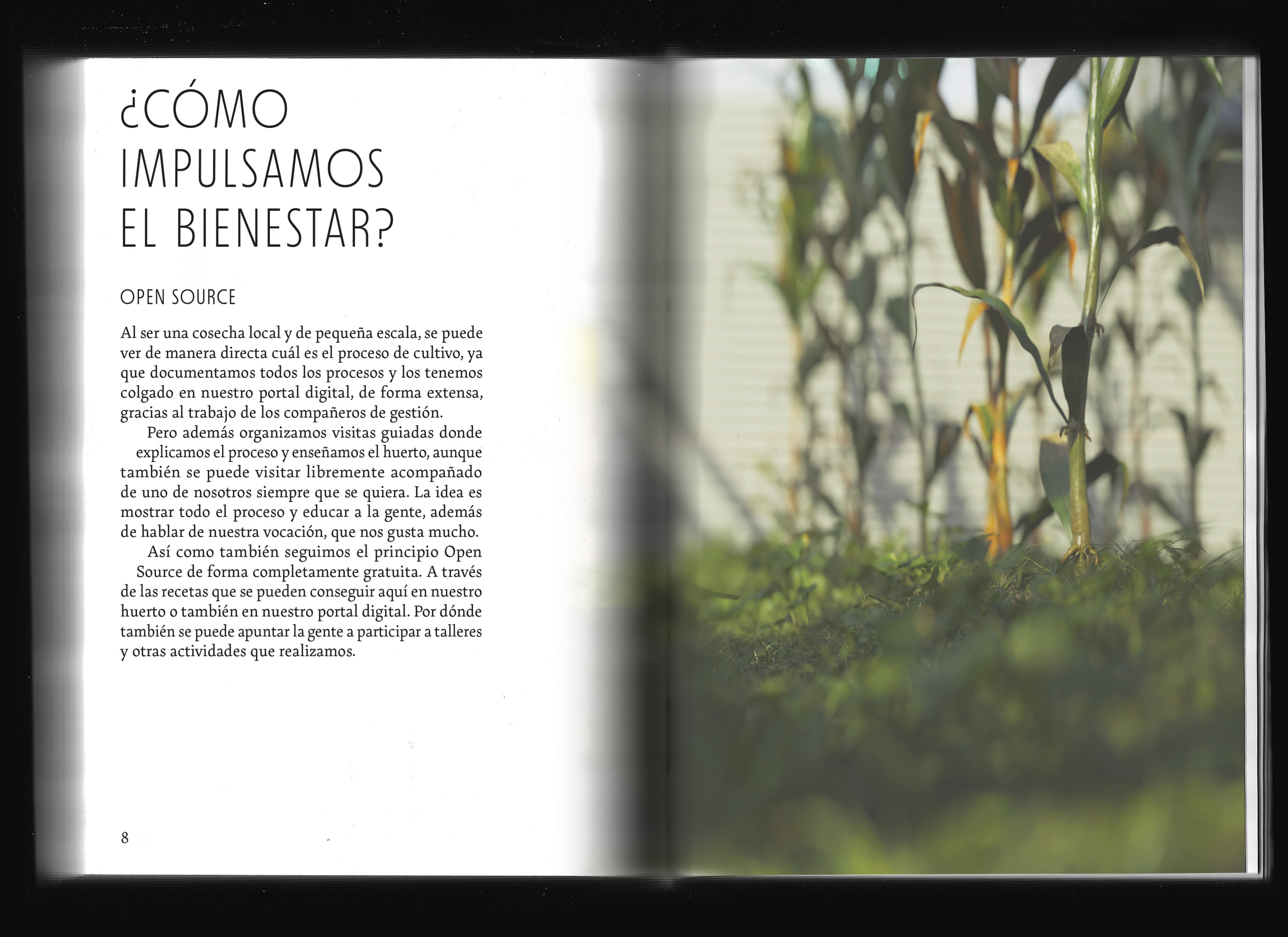
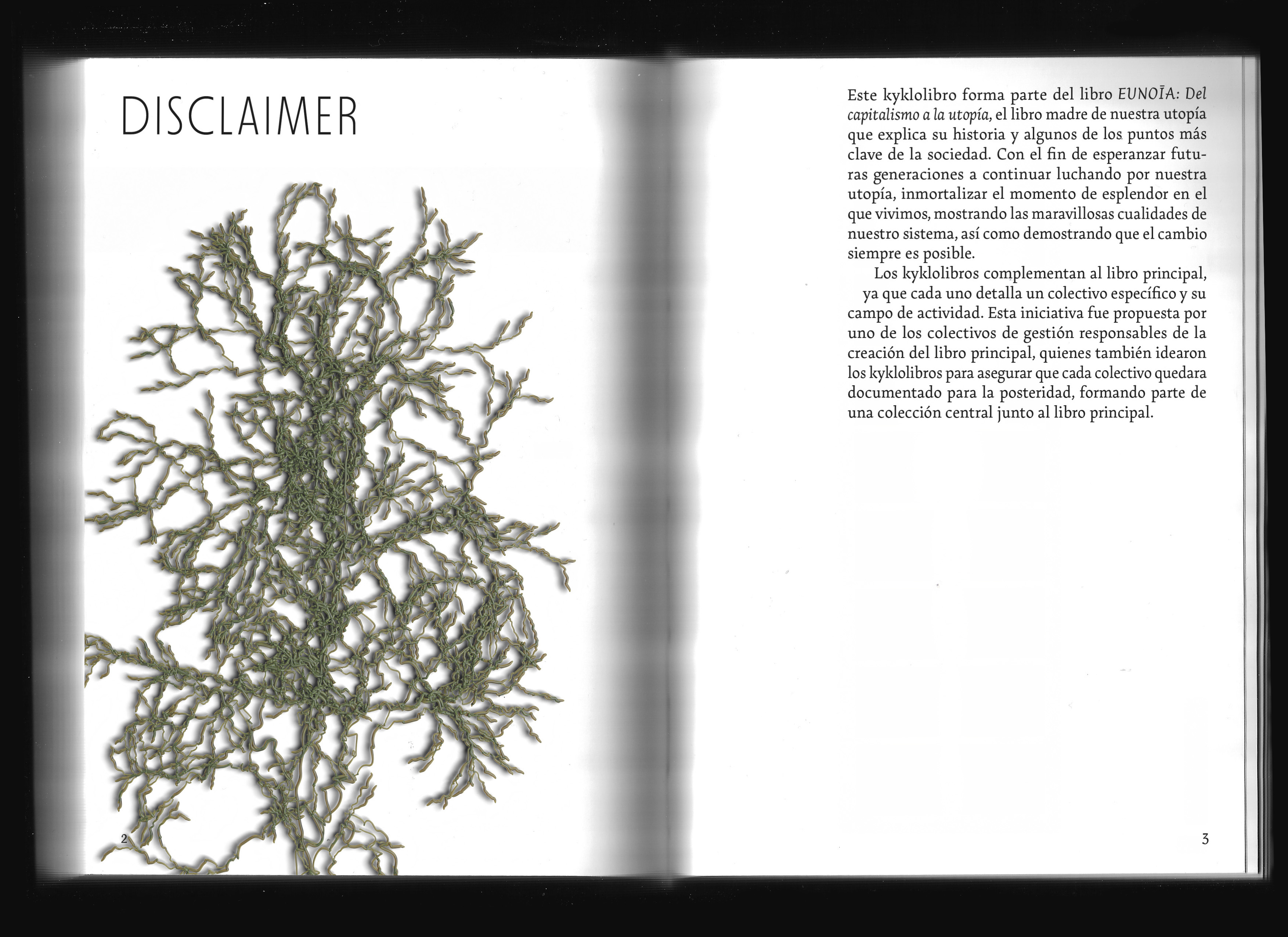
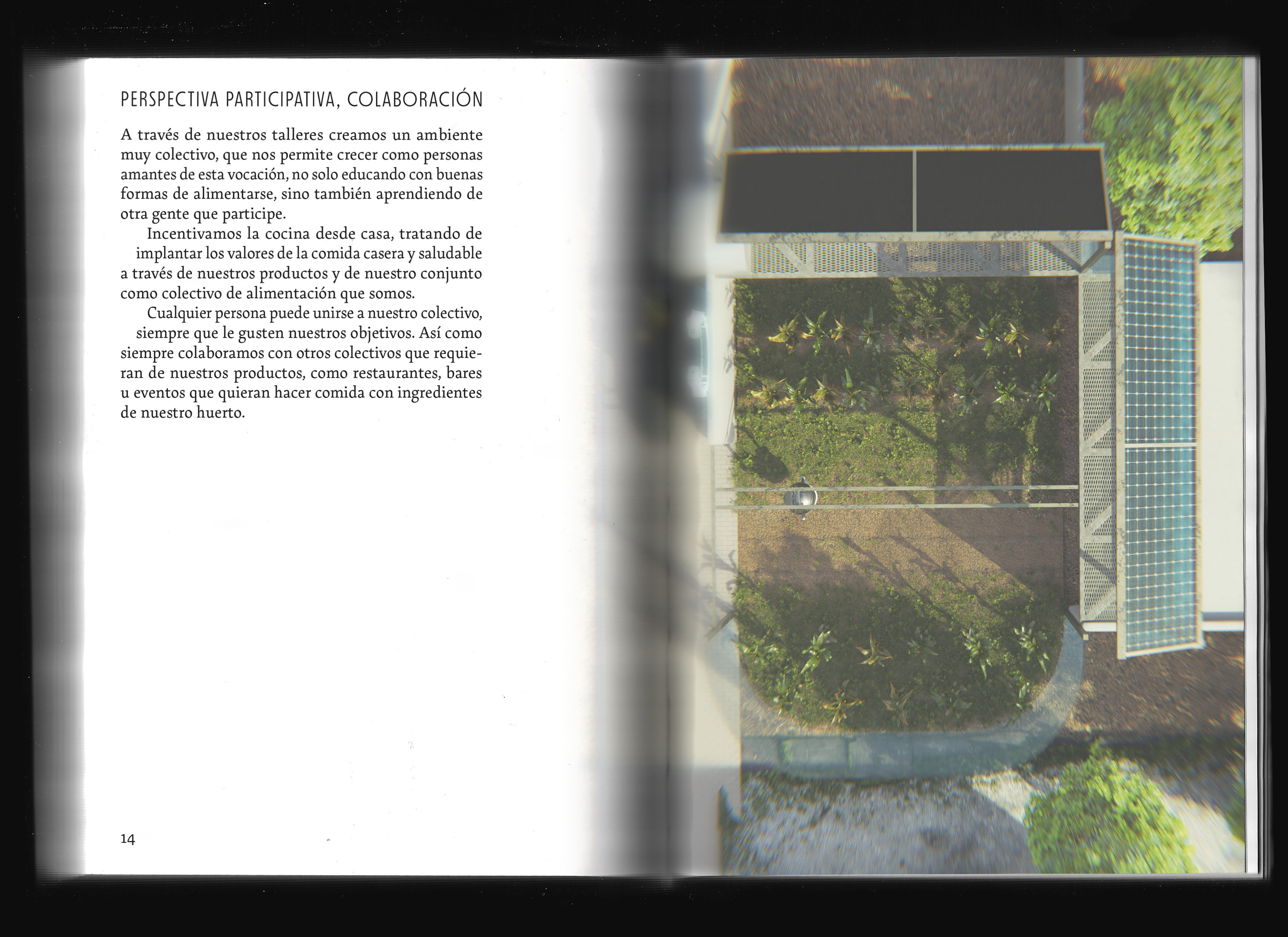
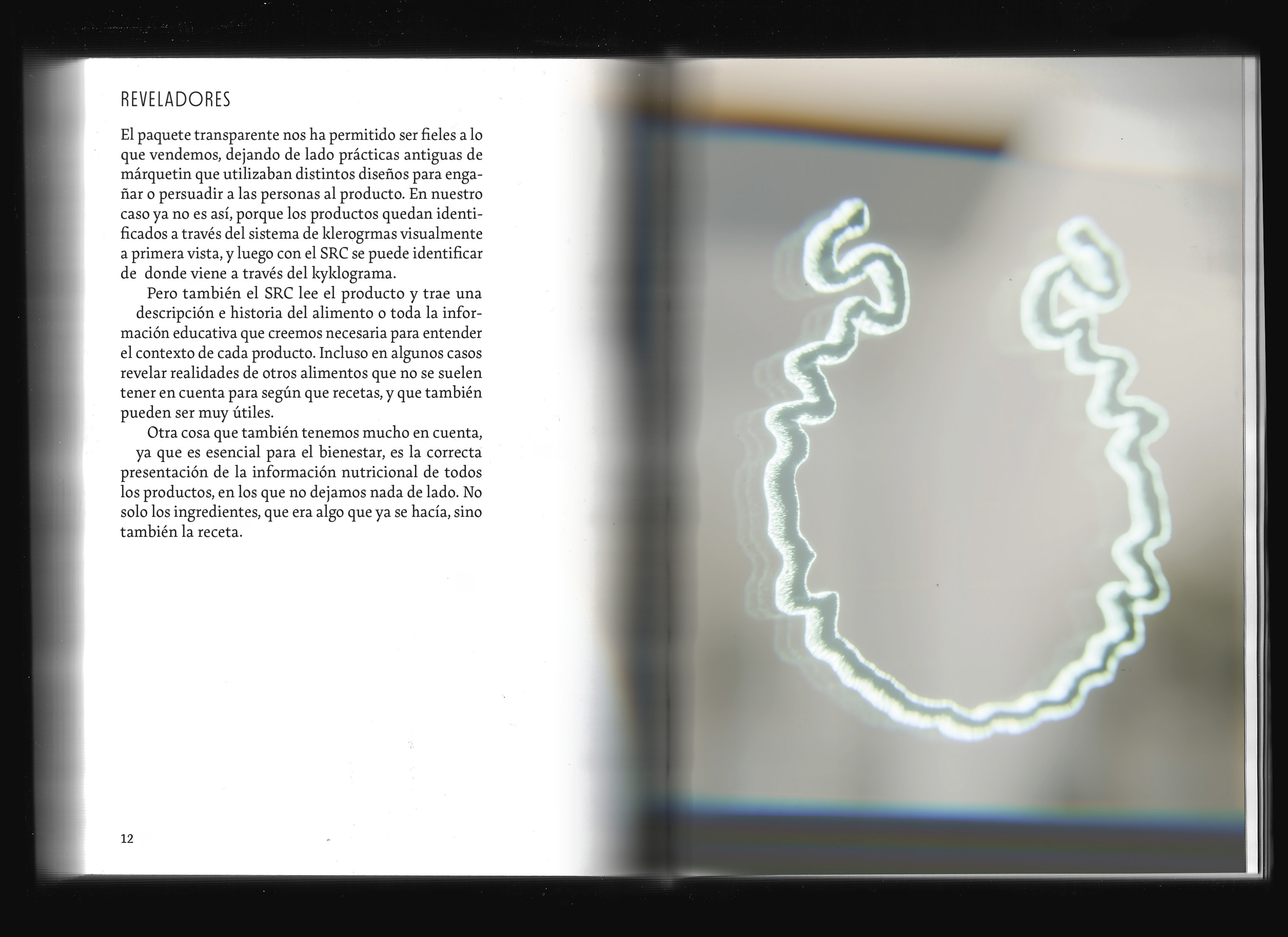
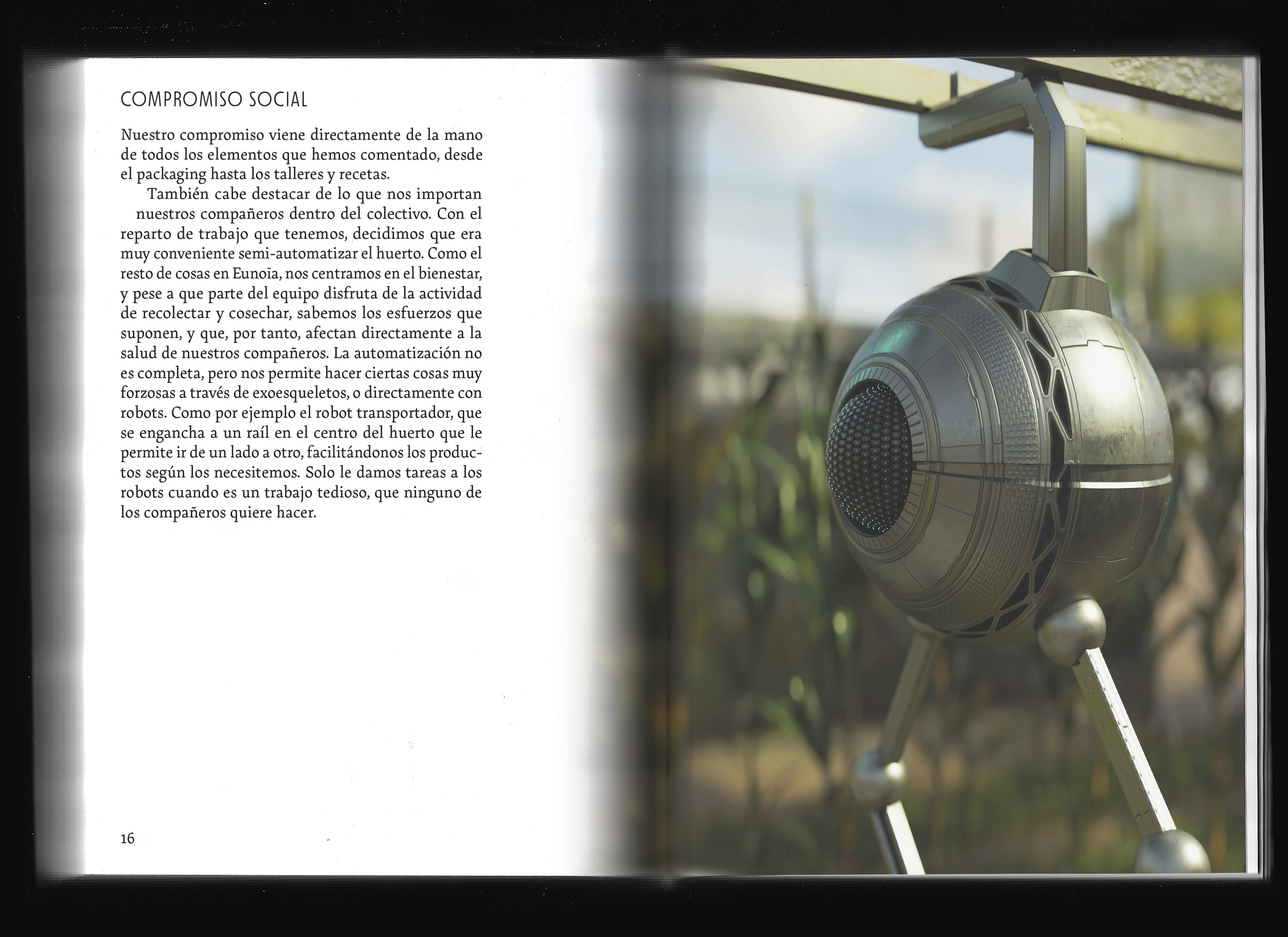

This Food Collective in Eunoīa is a local, sustainable farm and community centre focused on transparency and community involvement. They grow seasonal vegetables, specializing in corn, using both human expertise and automation. Their utopian approach balances technology with human connection, offering open-source cultivation methods and recipes online and through greenhouse tours. Their transparent packaging highlights the food, and they host workshops on healthy eating and sustainable living. This model aligns with Eunoīa’s values of ethical sourcing, responsible consumption, and equitable resource distribution.

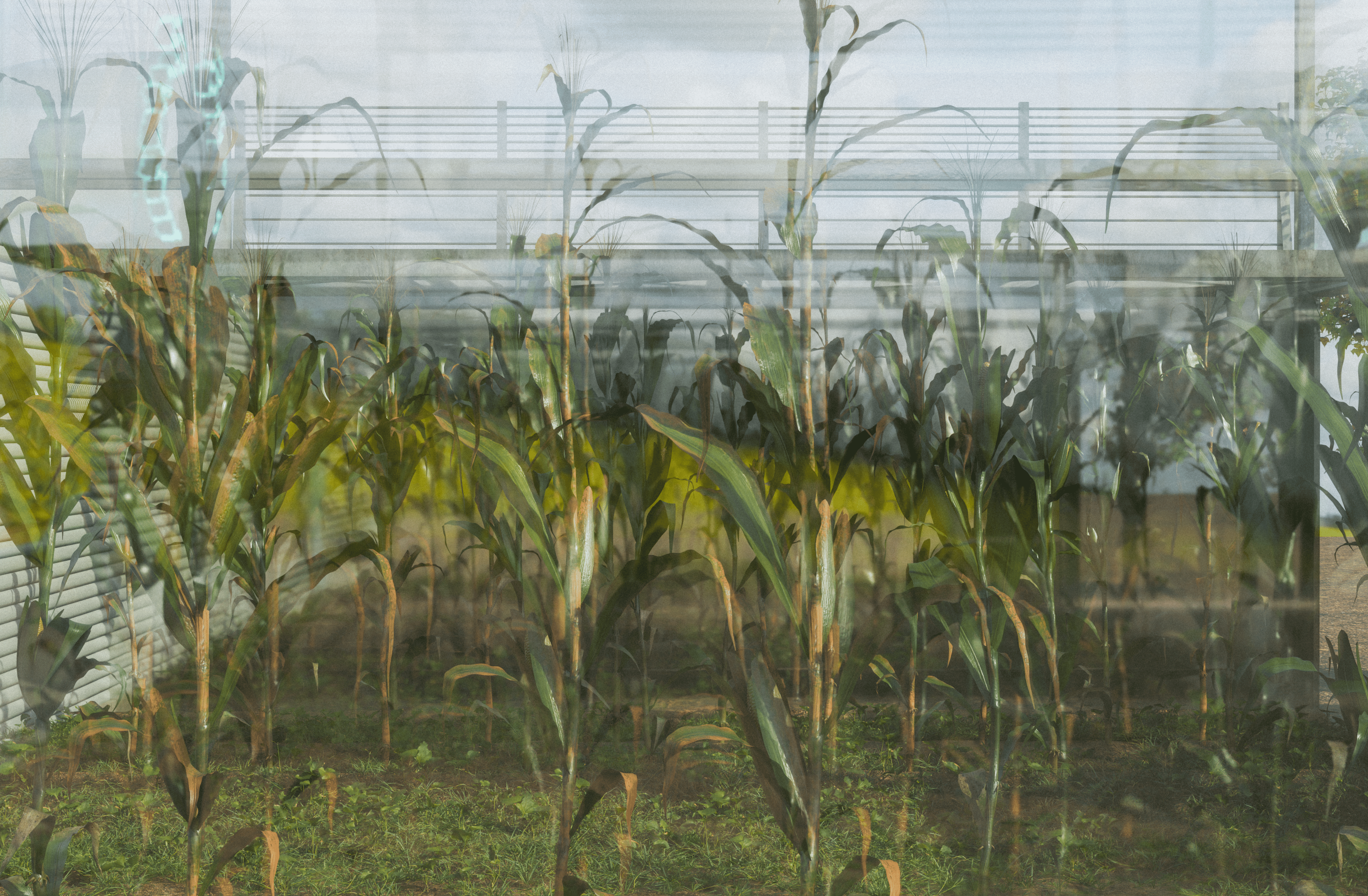




EXAMPLE OF TECHNOLOGY COLLECTIVE
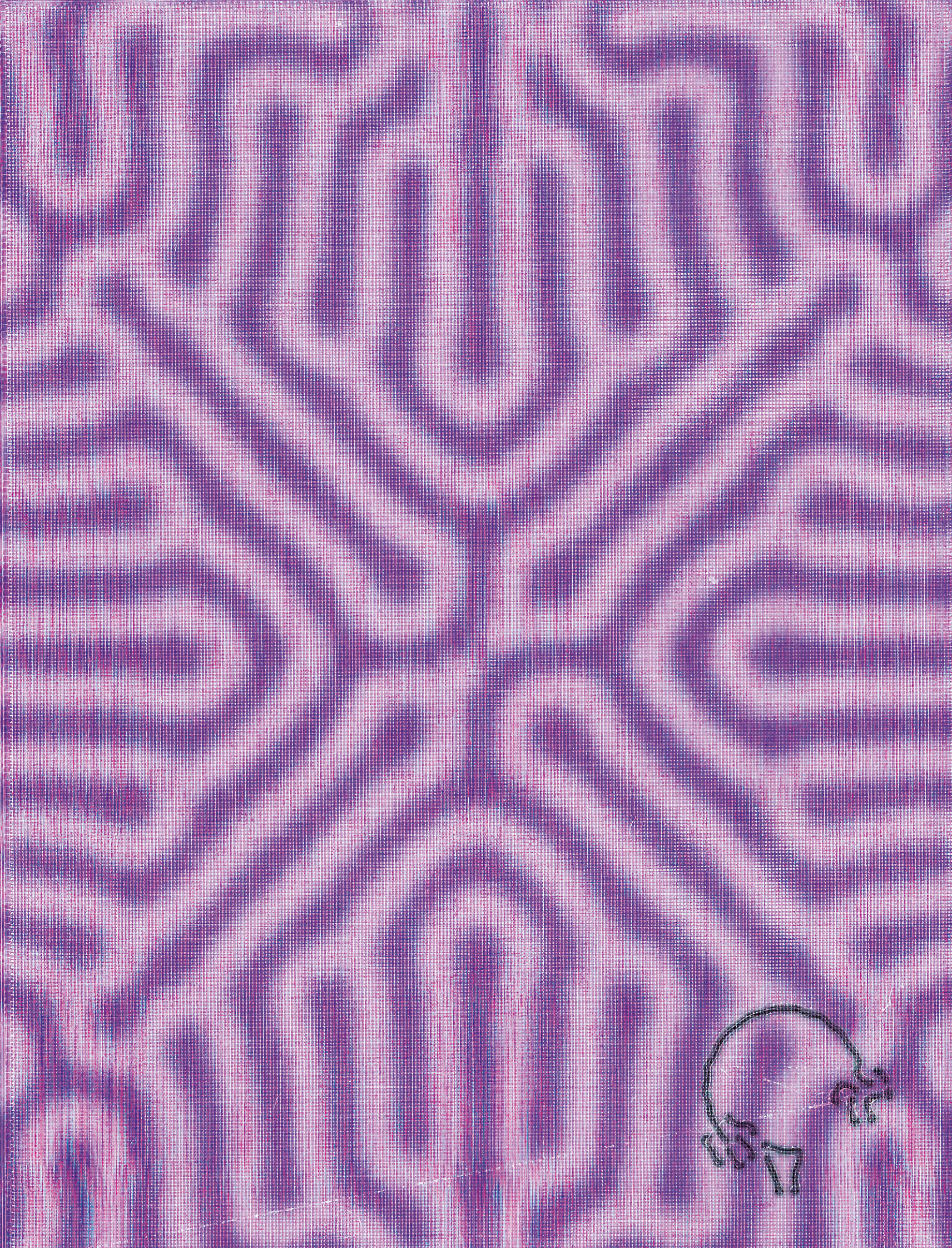
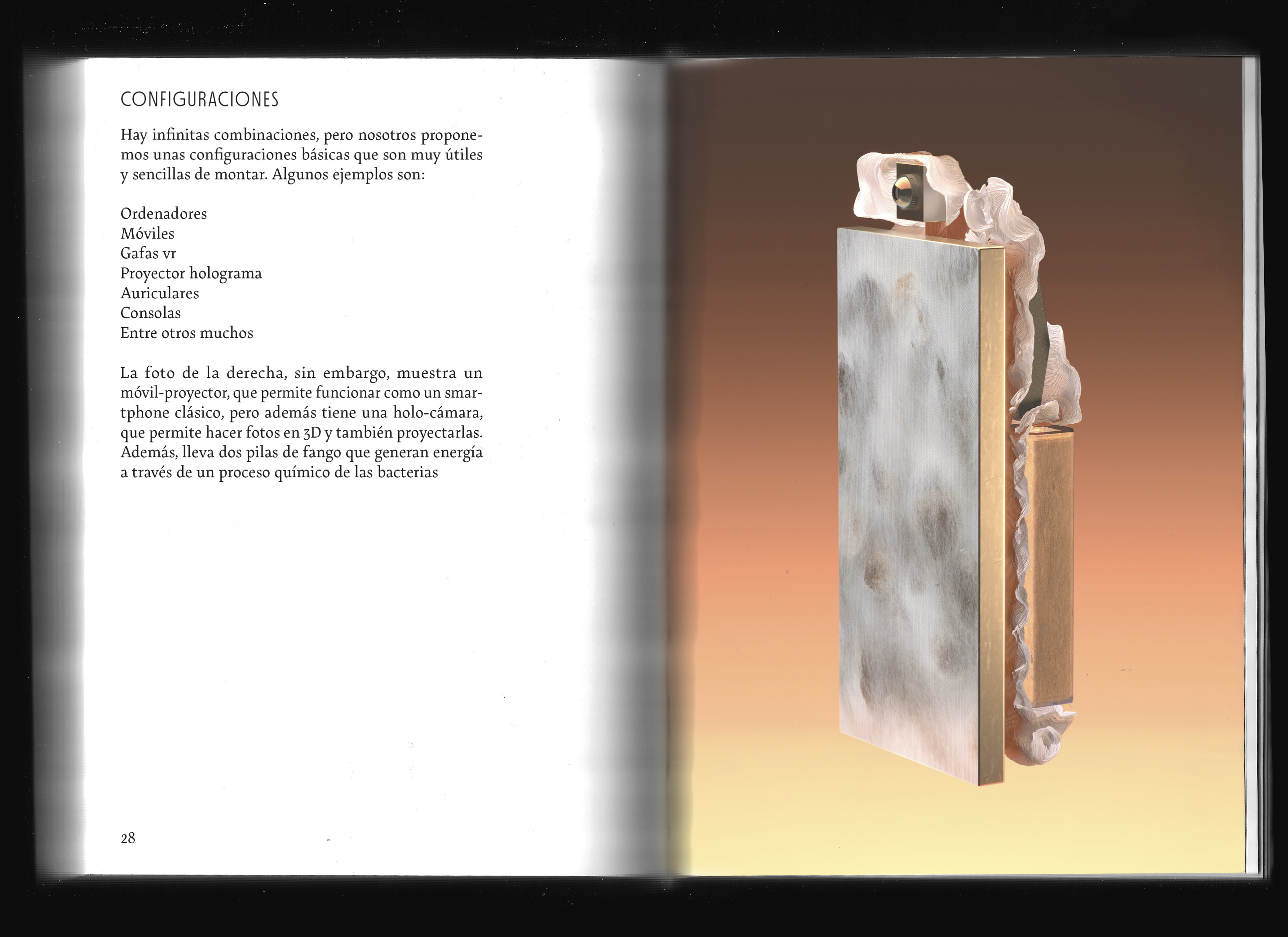
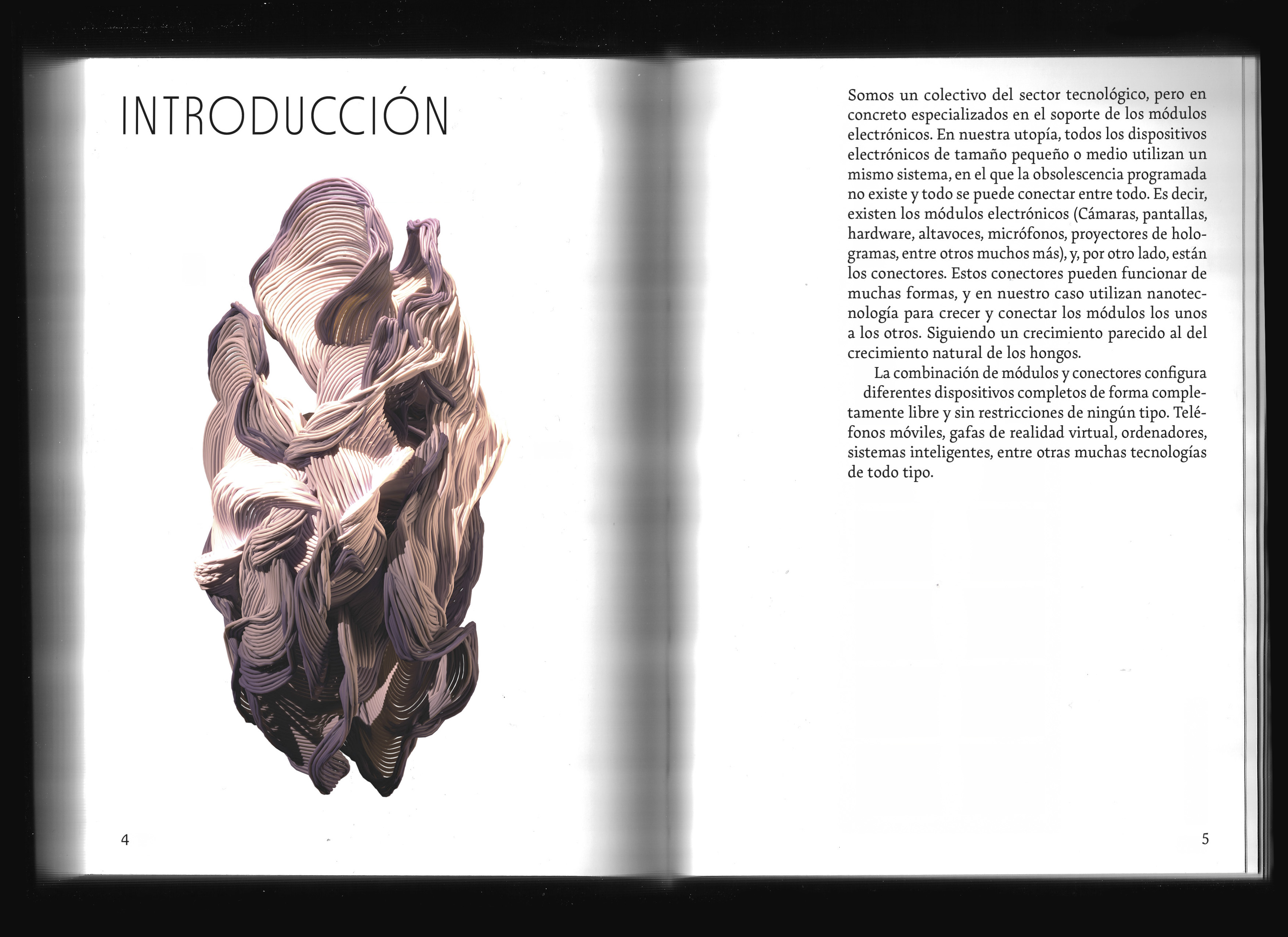
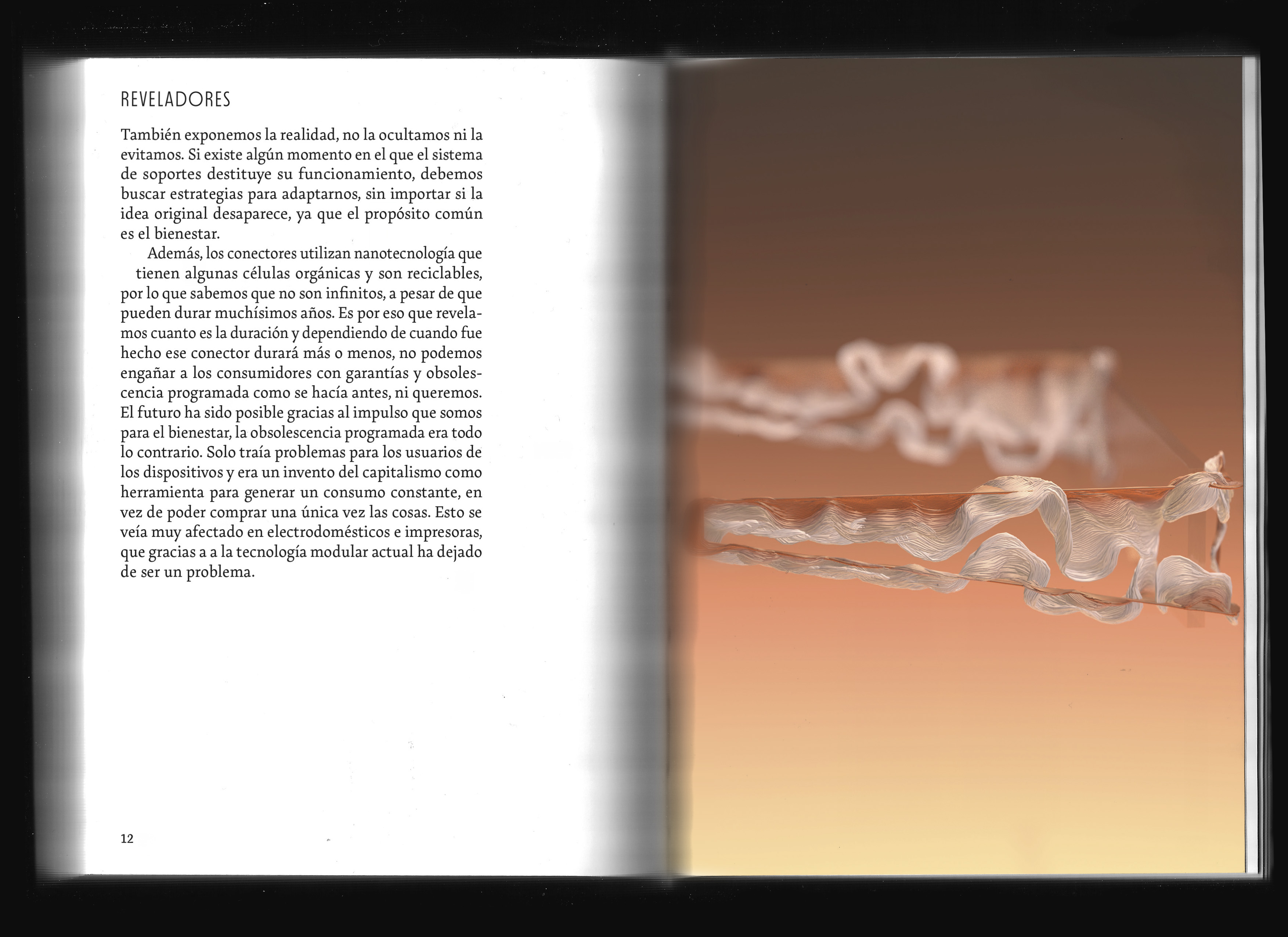
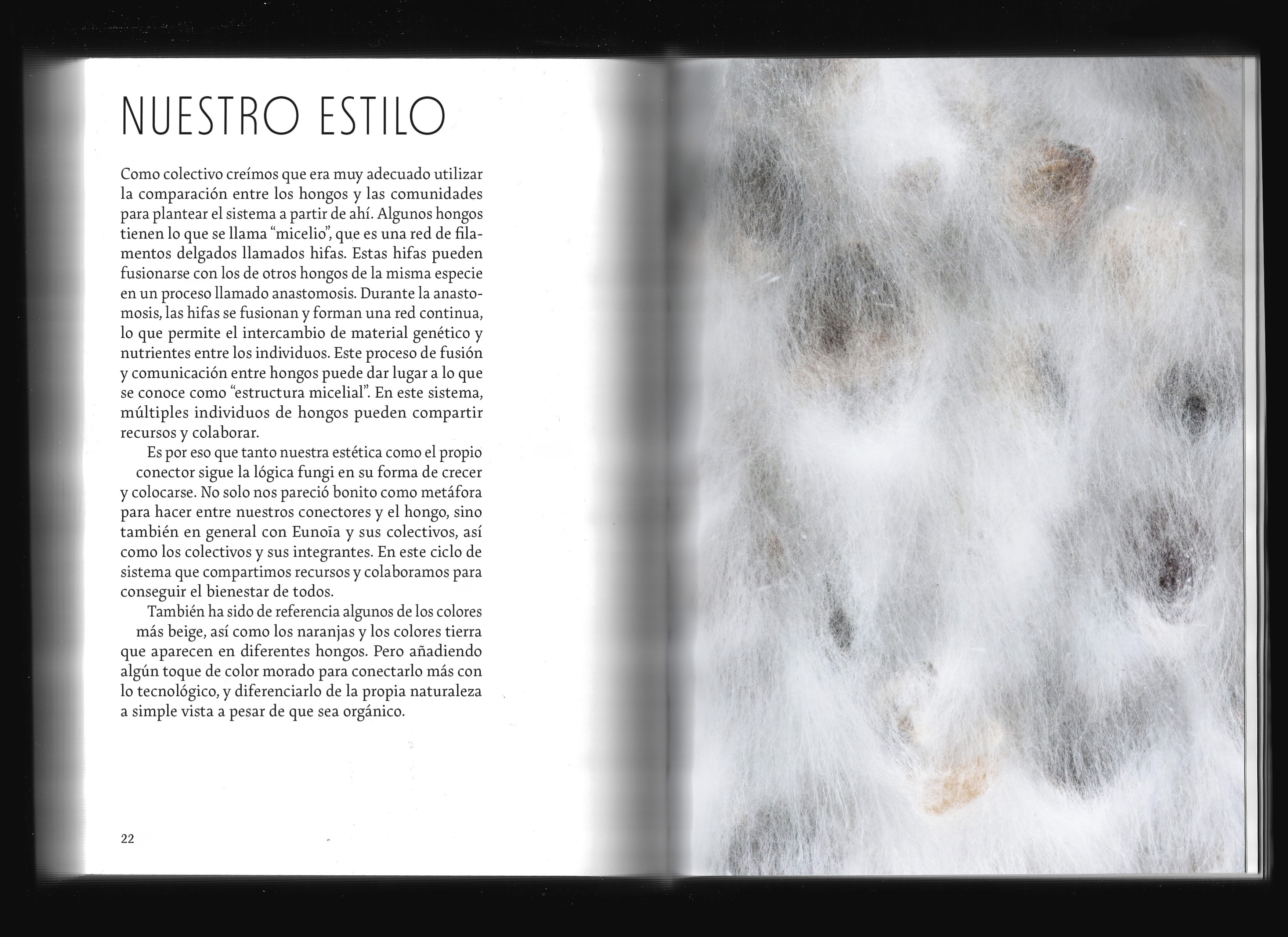

The Tech collective in Euno ī a specializes in creating modular electronic components, specifically connectors that link together various technological modules like cameras, screens, and batteries, to build complete devices. They operate on principles of open-source technology and transparency, making their designs and processes freely available to anyone who wants to use or improve them. This approach fosters collaboration and ensures that technological advancements benefit the entire community, aligning with Eunoia's emphasis on collective well-being. Instead of competing for market dominance, the tech collective focuses on creating a sustainable and accessible technological ecosystem where users can easily assemble, repair, and upgrade their devices by swapping out modules. They actively encourage user participation in the design process, valuing feedback and promoting a sense of shared ownership over technological advancements. This collaborative approach, inspired by the interconnectedness of fungal networks, facilitates a more diverse and inclusive technological landscape where devices can be tailored to individual needs and preferences.
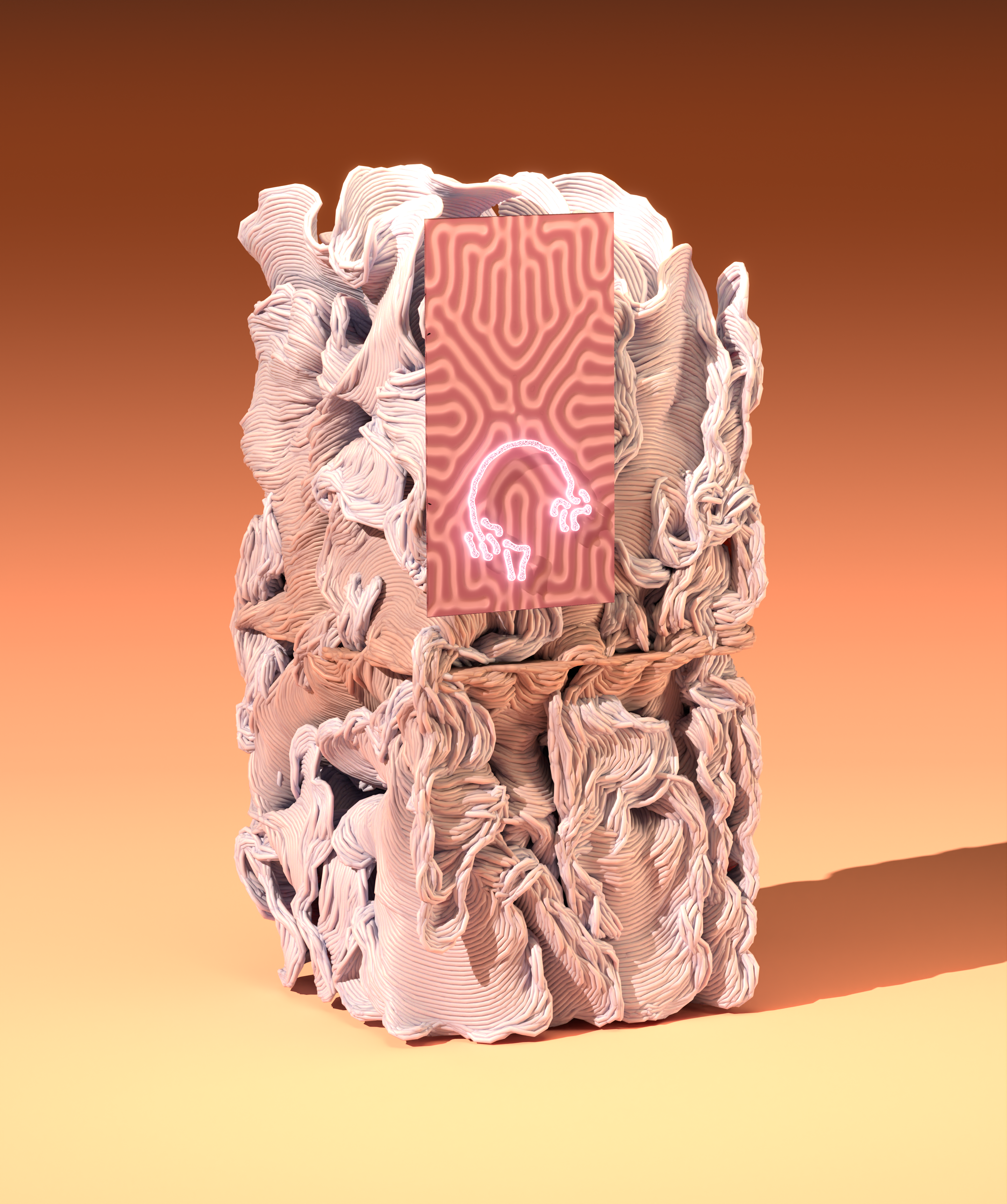

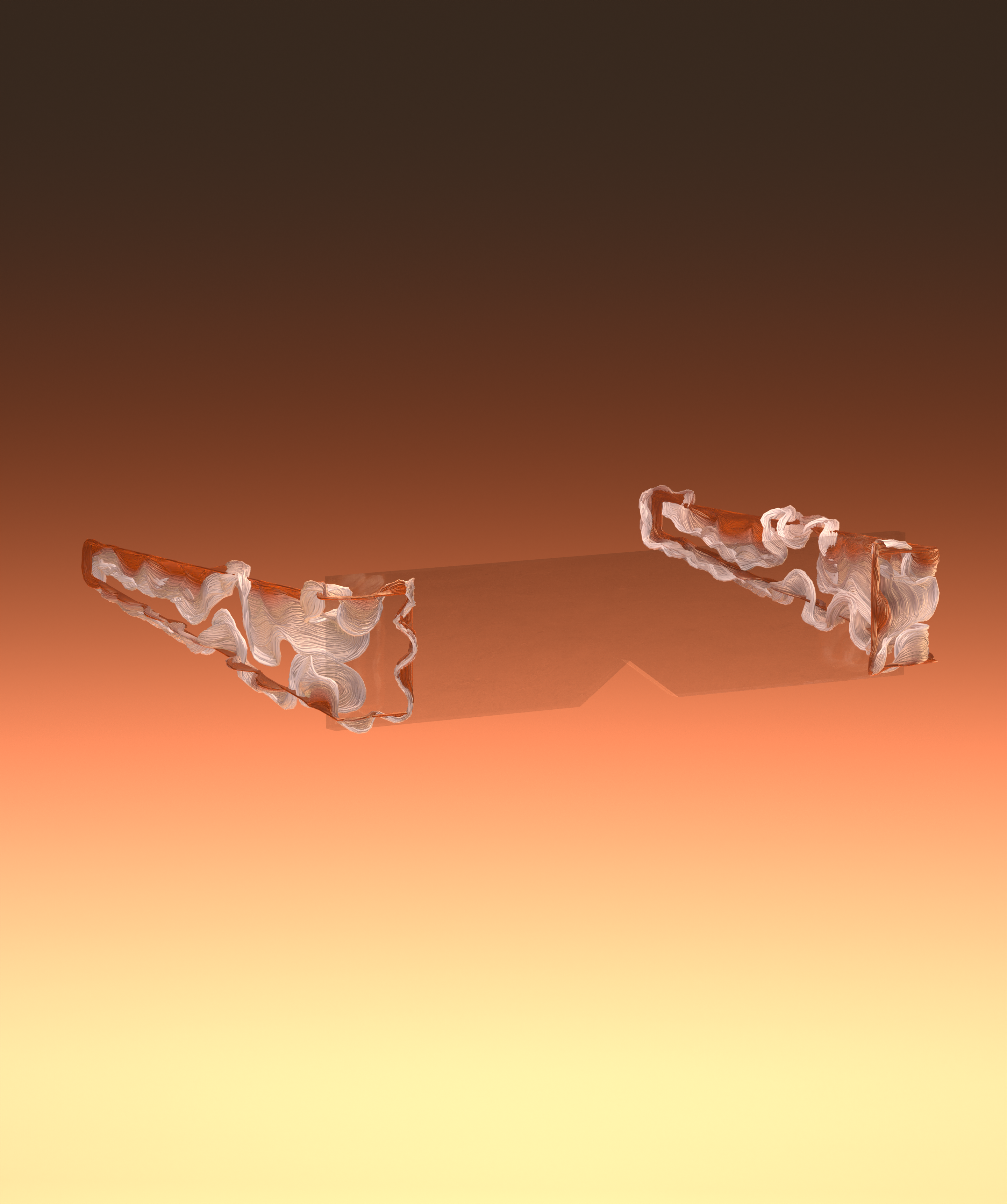


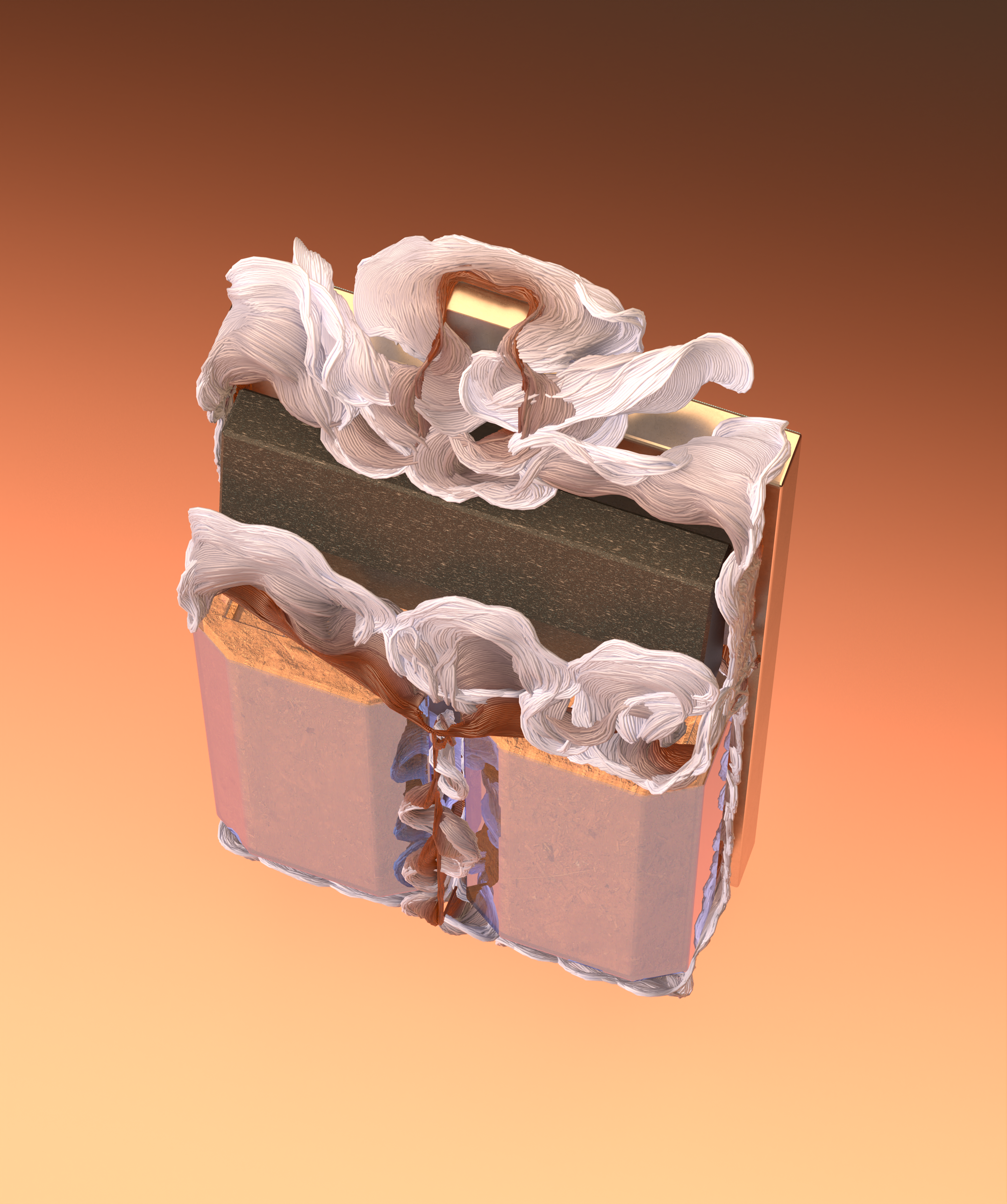
EXAMPLE OF CULTURAL COLLECTIVE
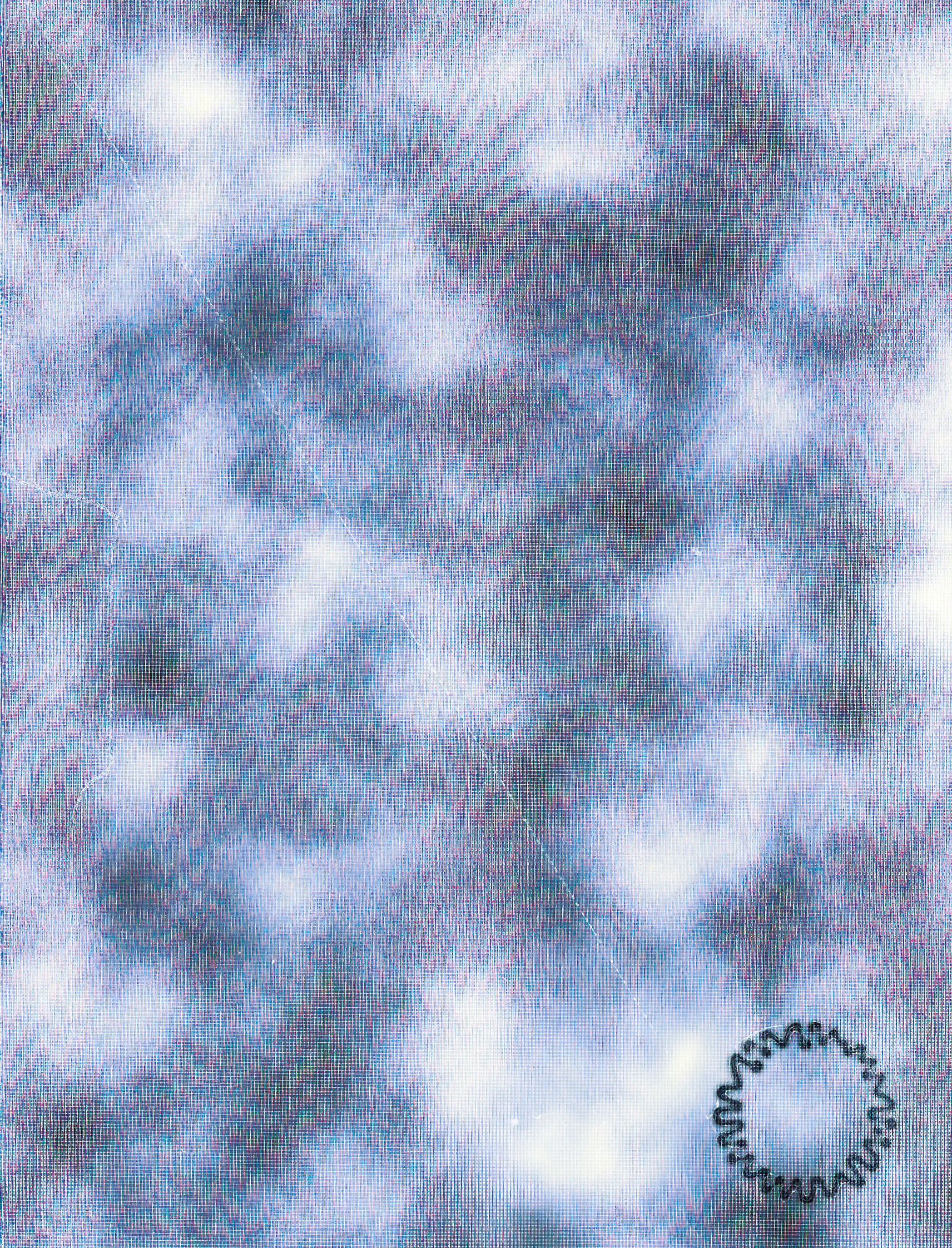
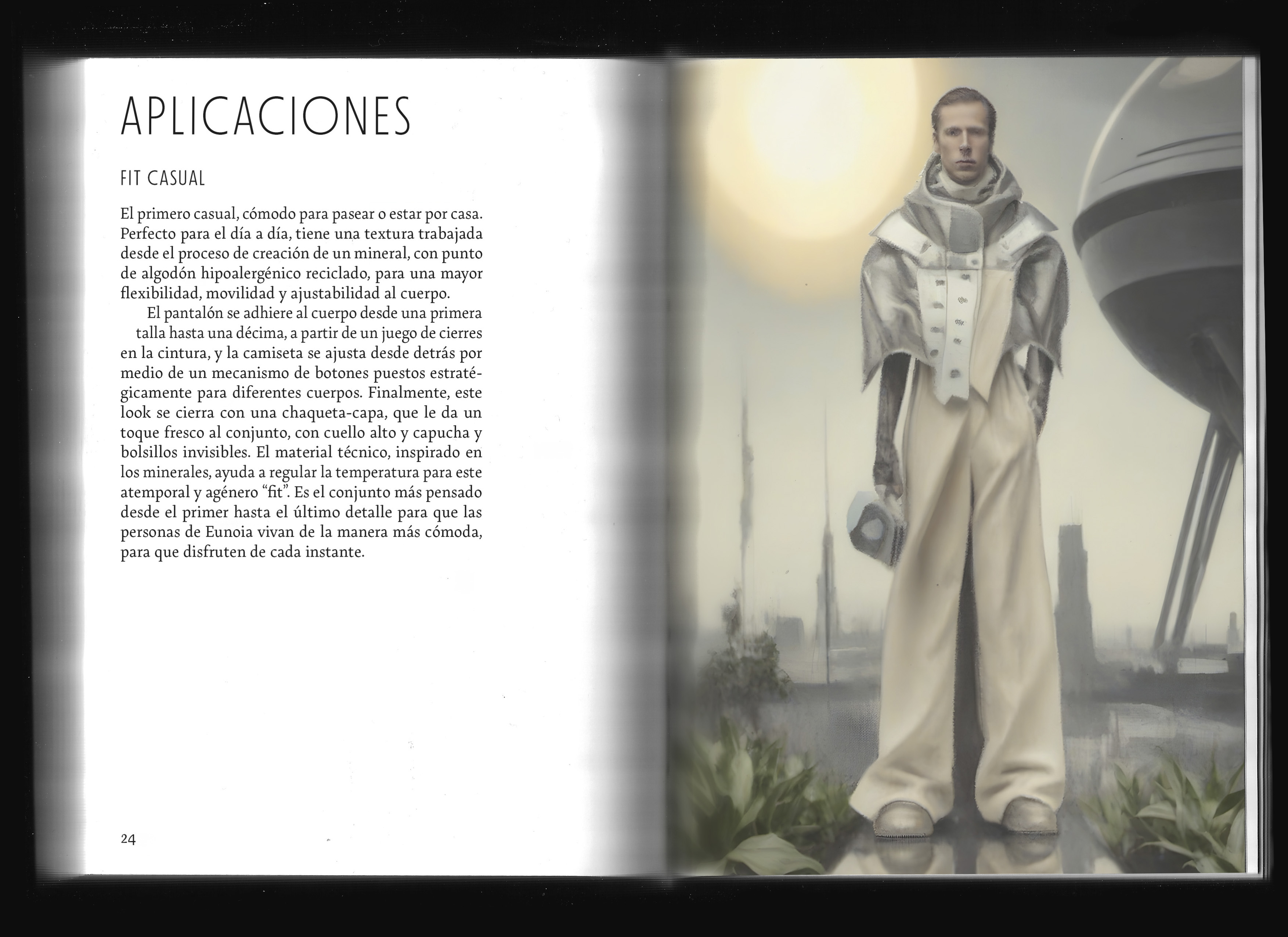
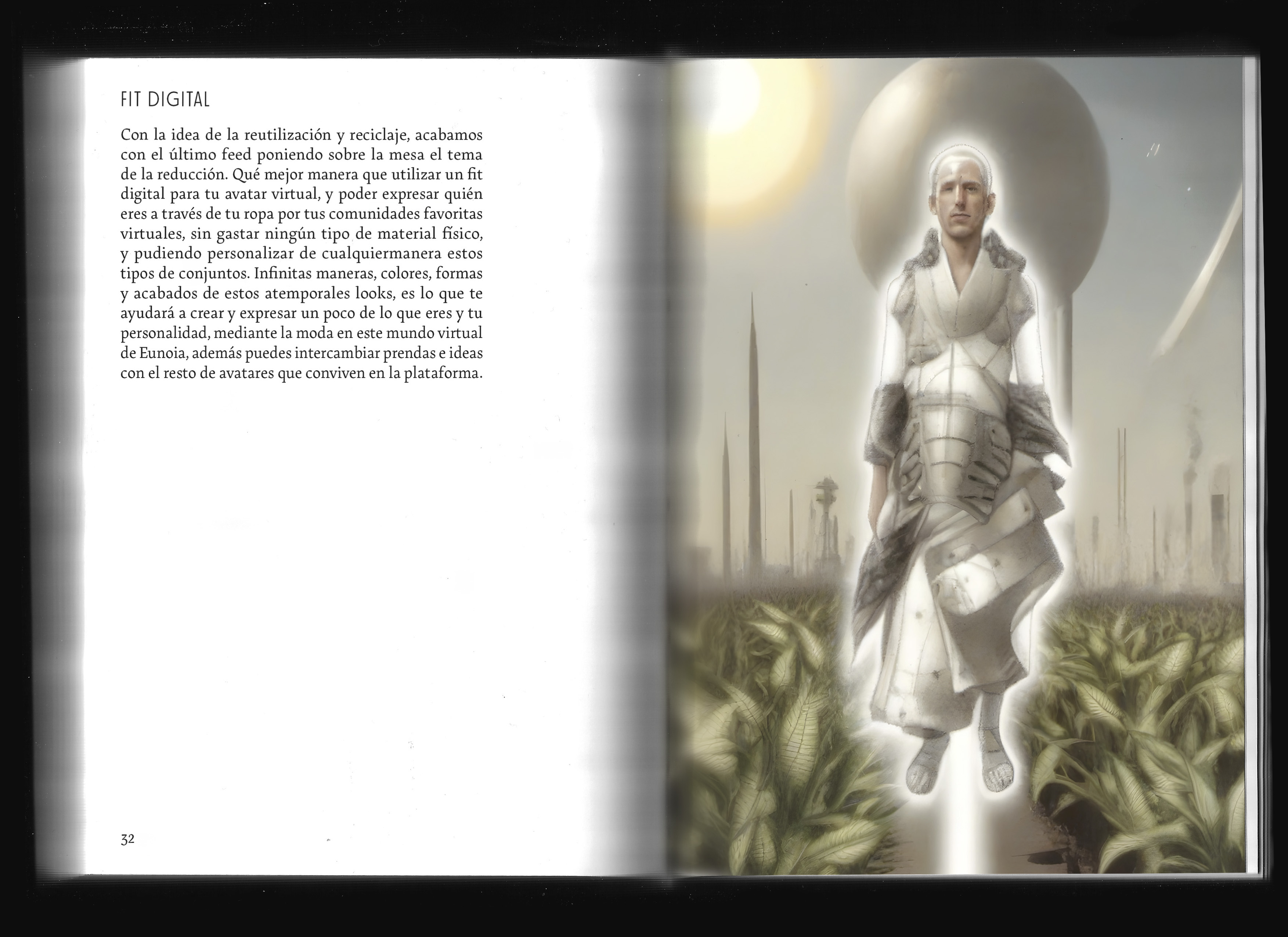
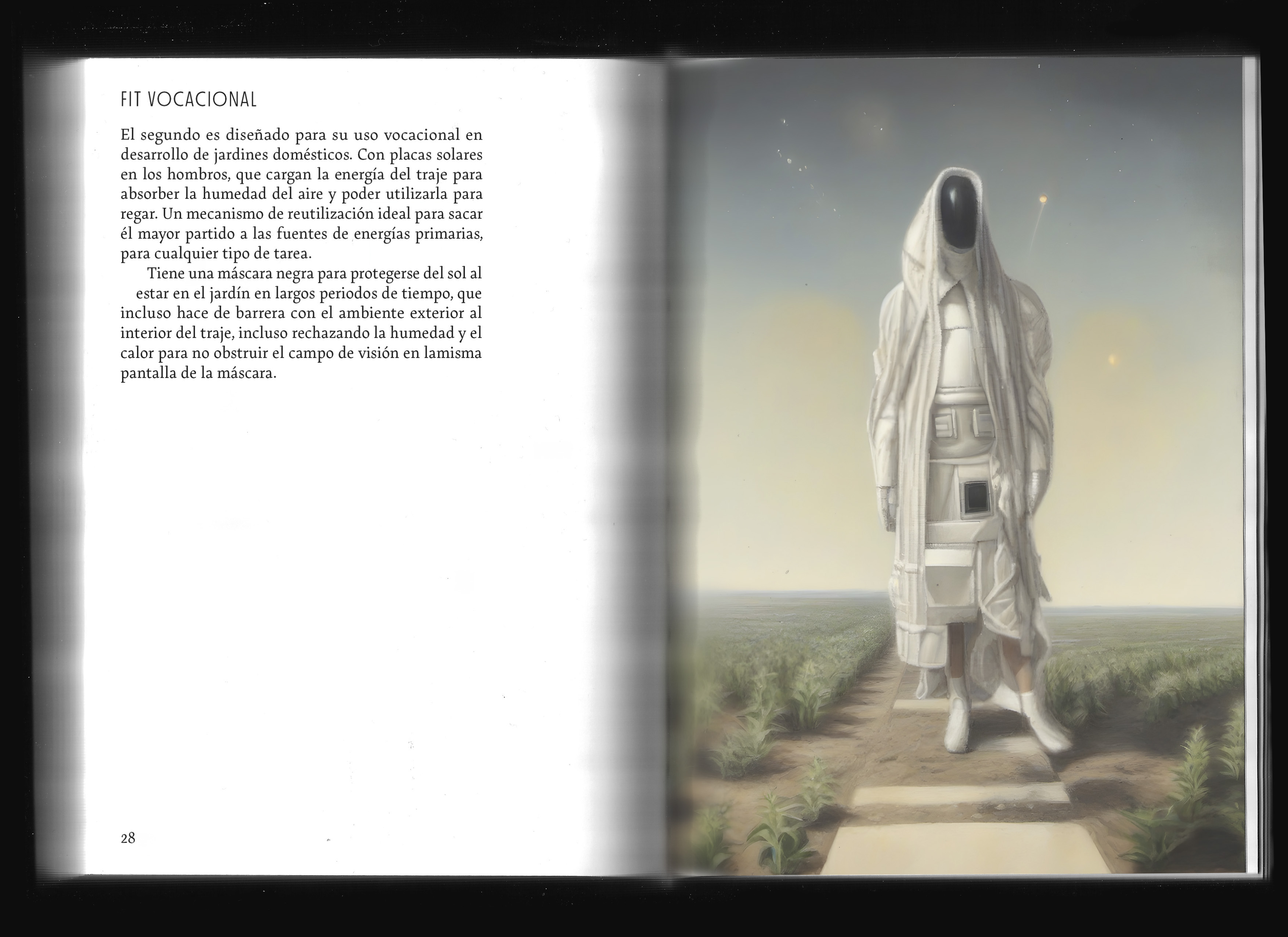
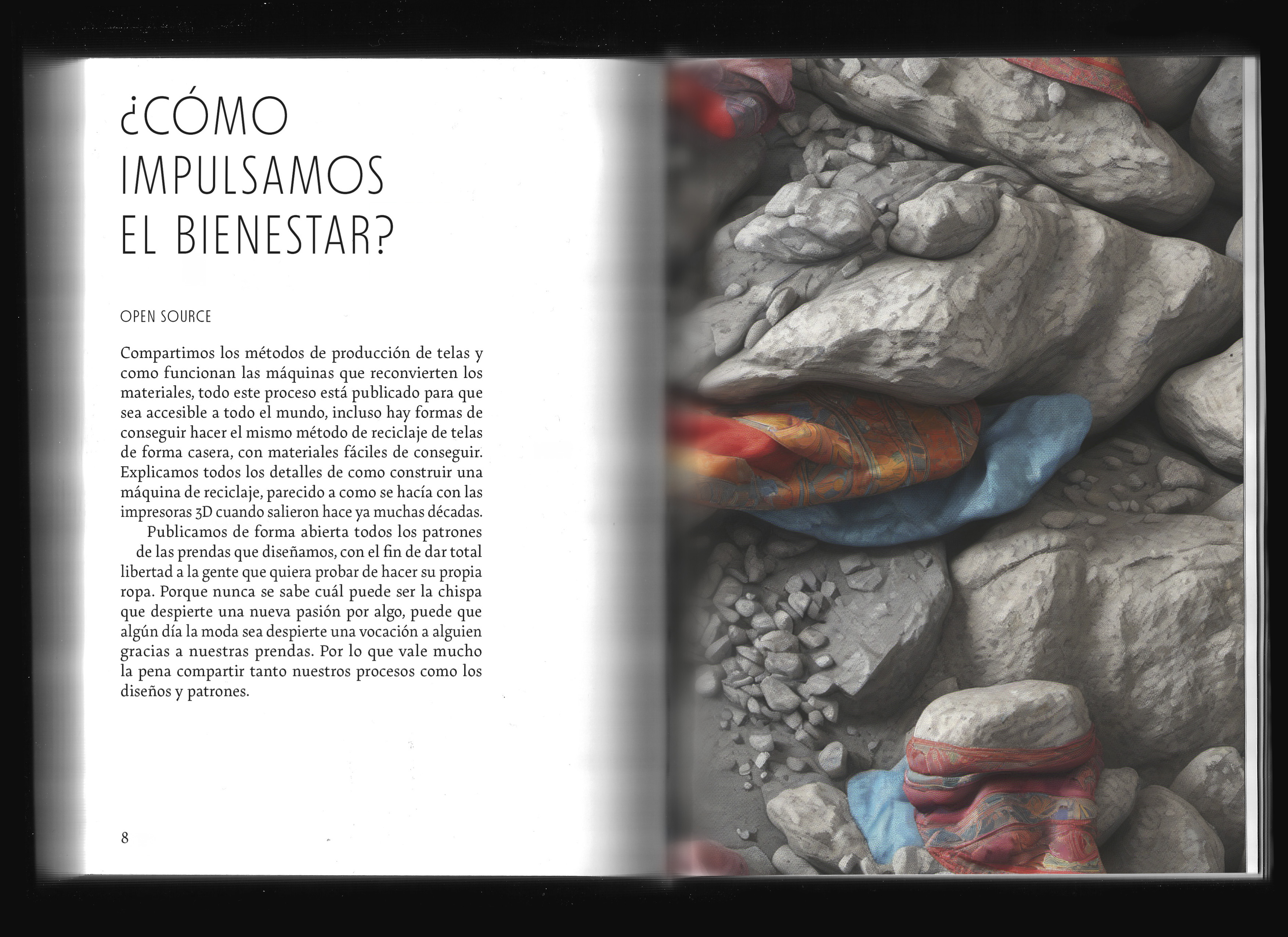
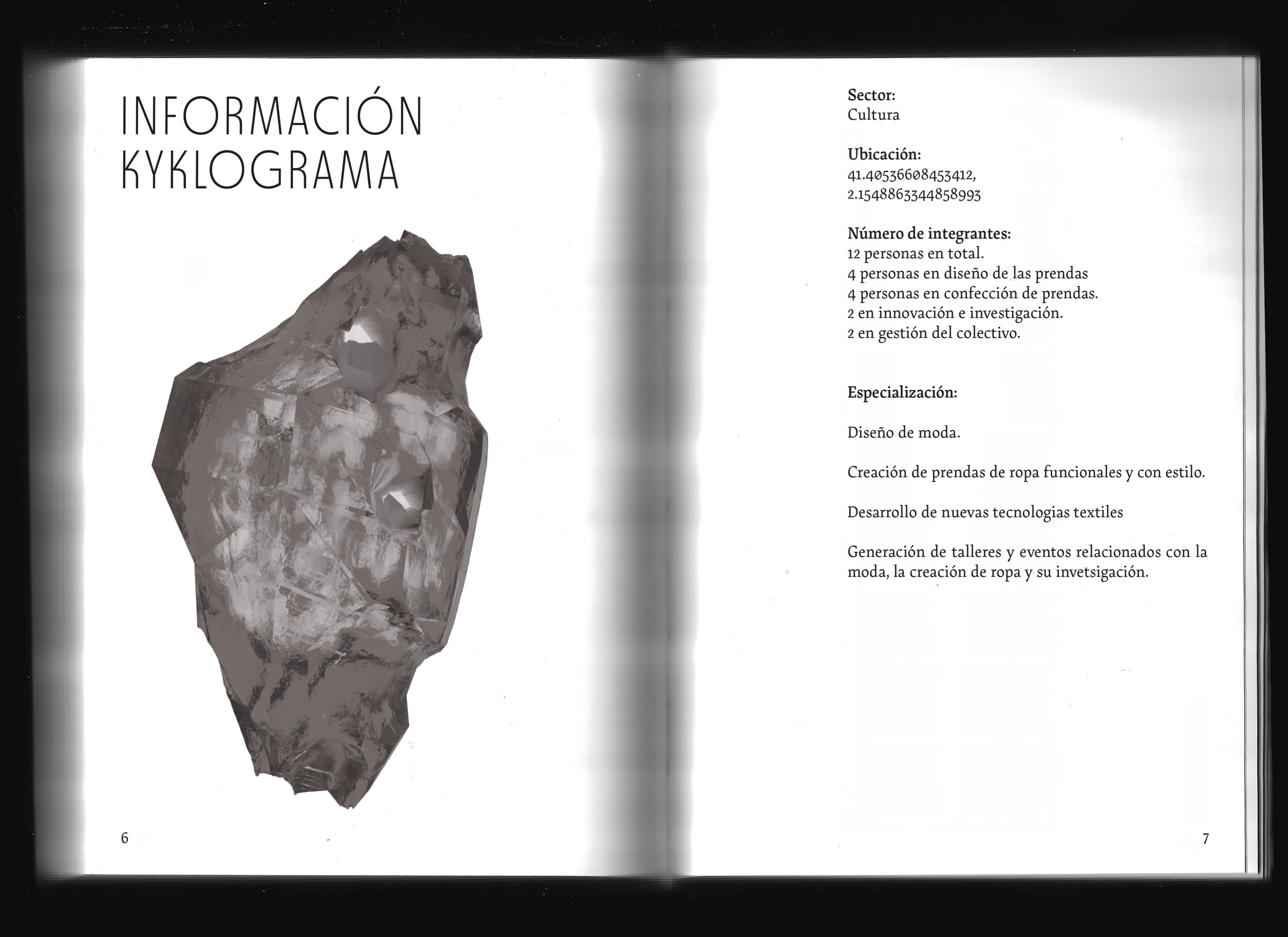
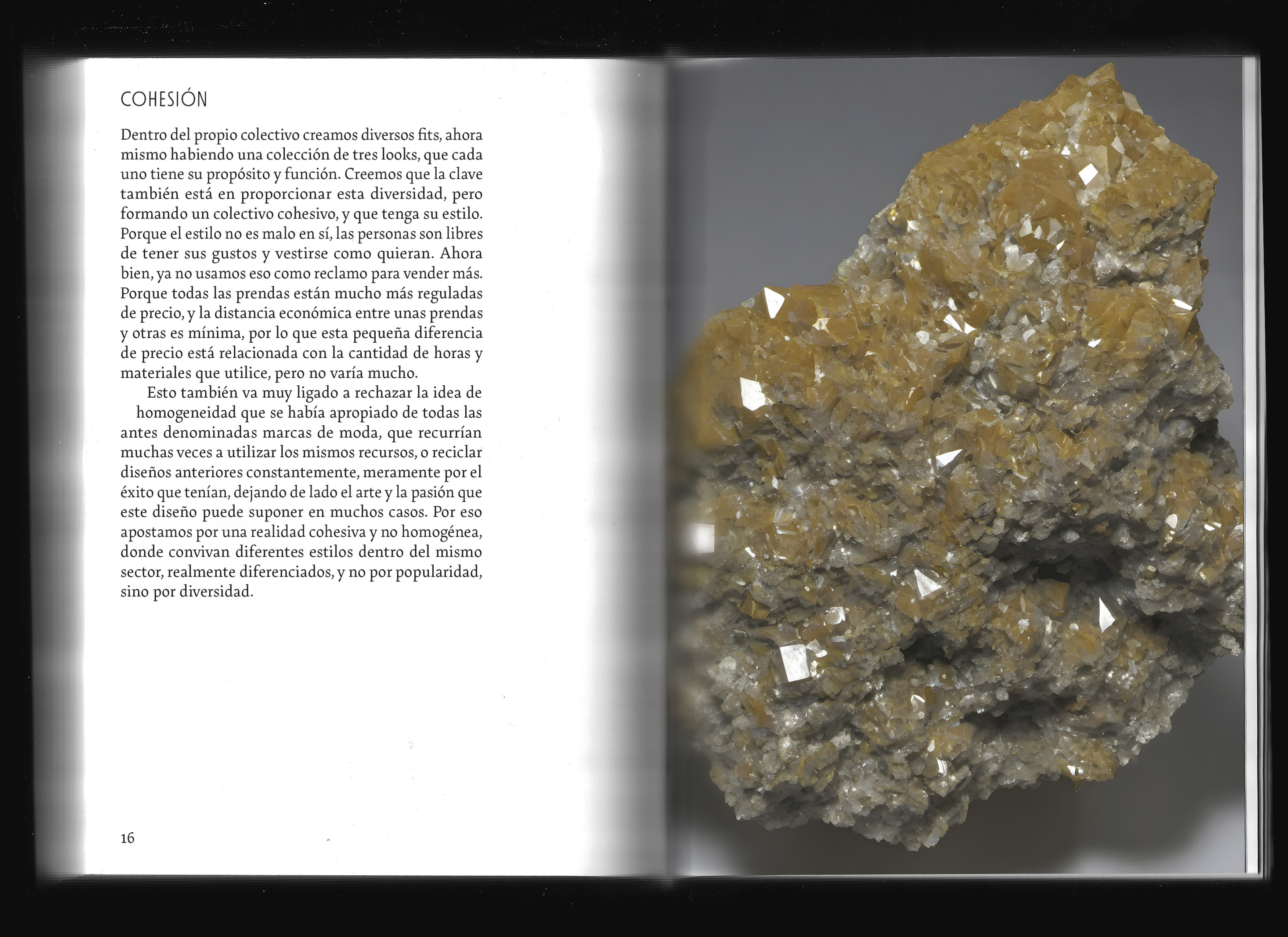

The Clothing Collective in Eunoia is a non-profit design and production center focused on sustainable, ethical, and personalized clothing. They use a closed-loop system to recycle discarded garments into new, durable fabrics, minimizing waste and promoting resource conservation. Transparency is key, as they share design patterns, fabric production methods, and tailoring processes with the public. The collective offers personalized fittings and incorporates user feedback, creating garments tailored to diverse needs. This inclusive, collaborative process aligns with Eunoia’s values of well-being, self-expression, and responsible fashion. By prioritizing sustainability and open access, they empower individuals to engage meaningfully with fashion and showcase the potential of recycled materials.


